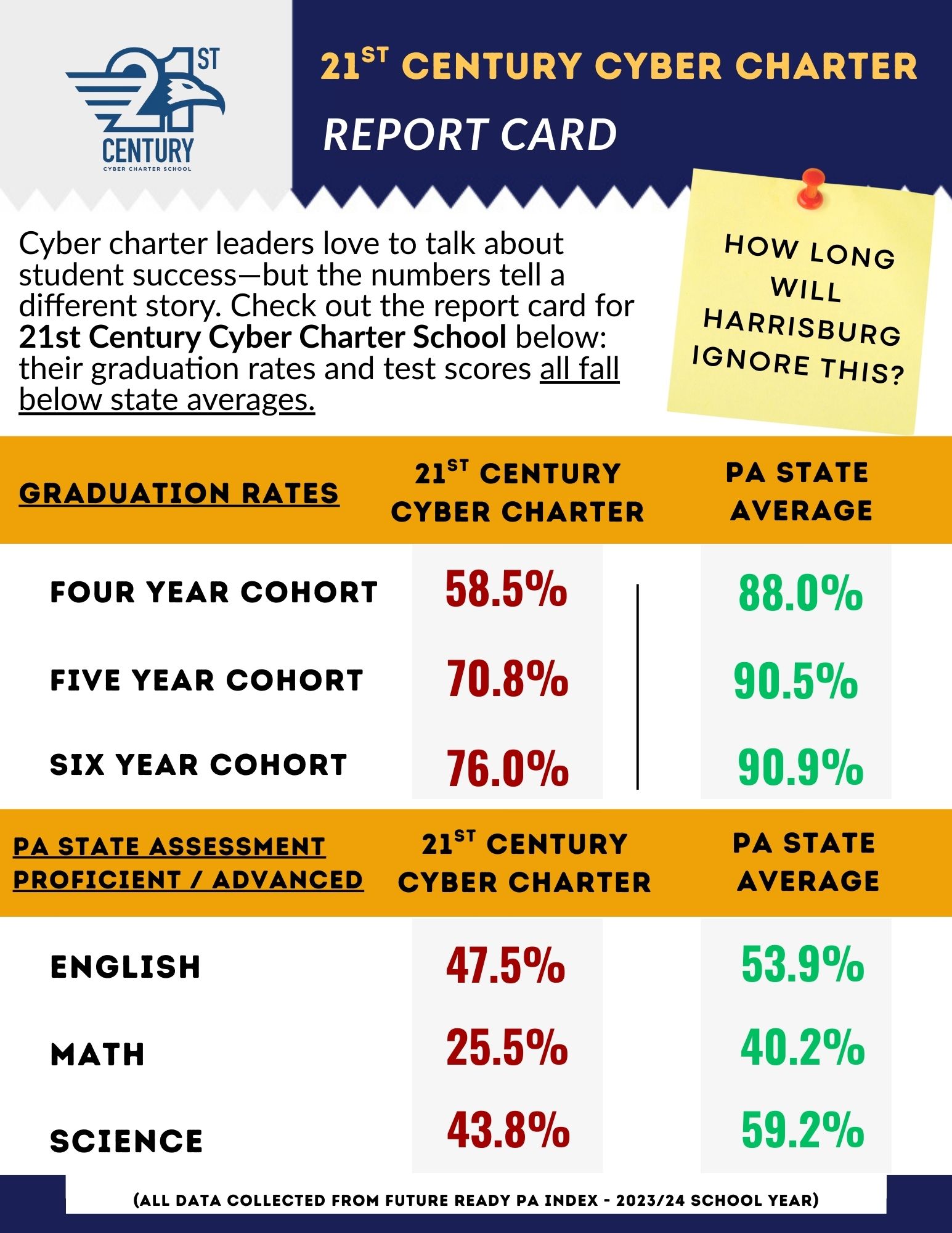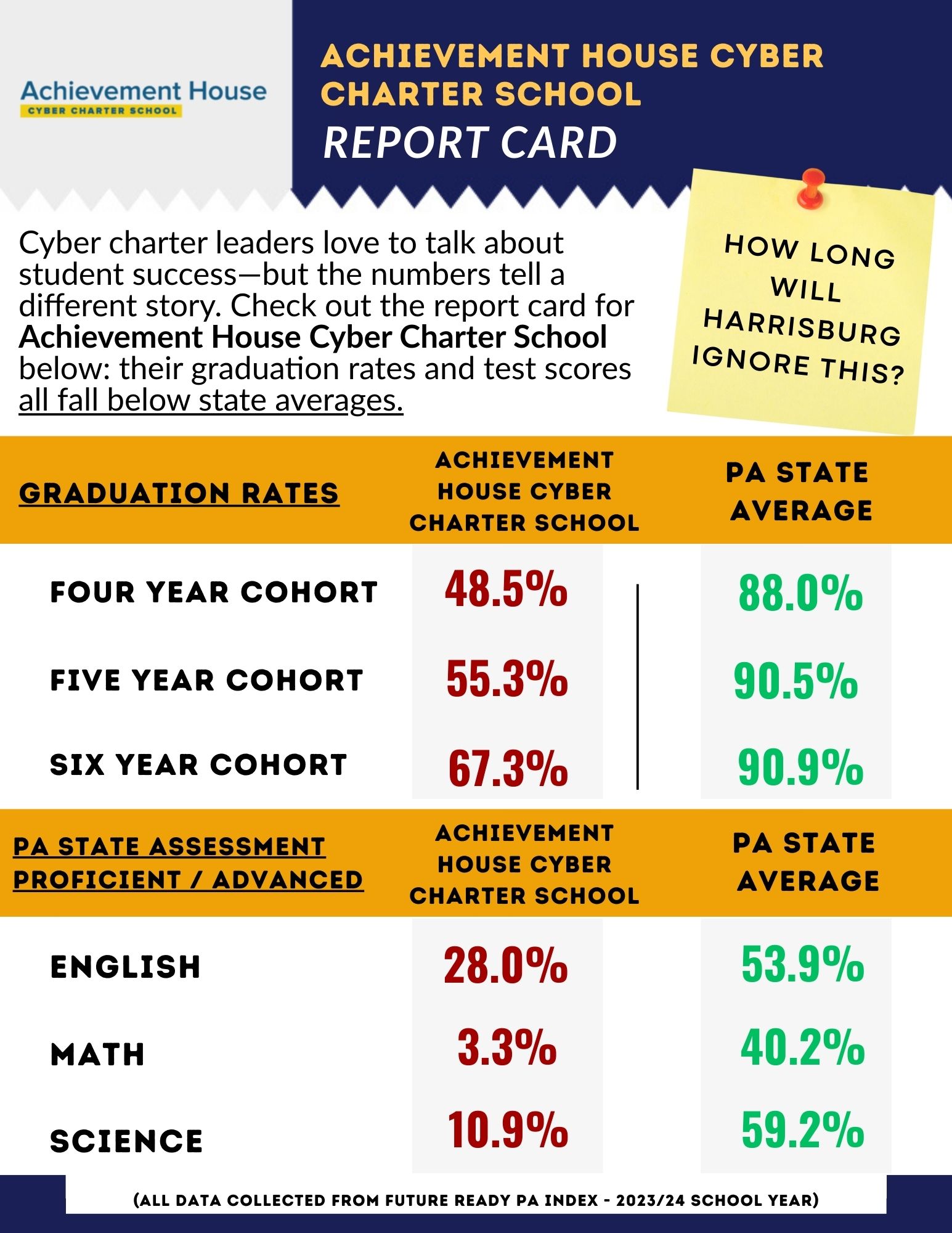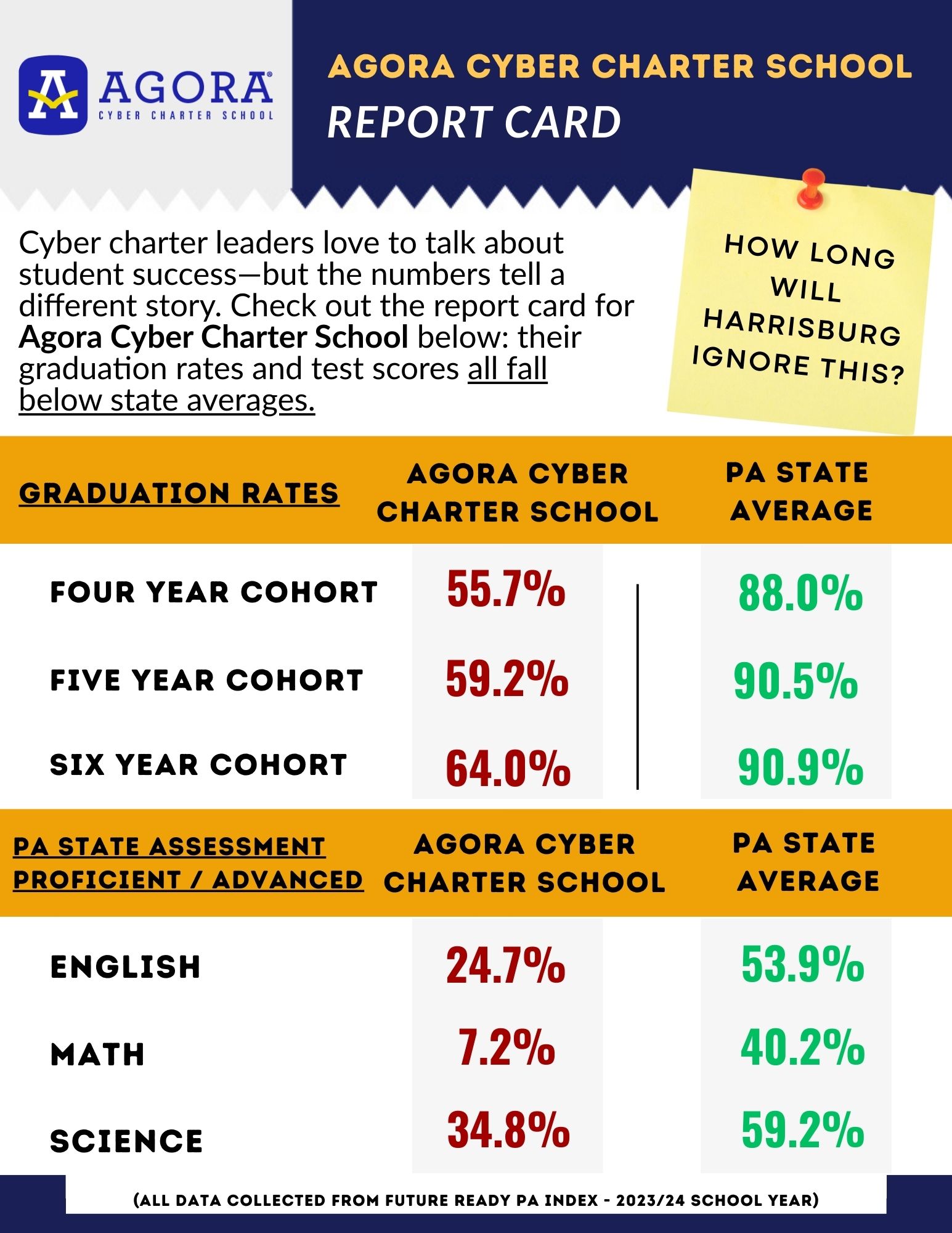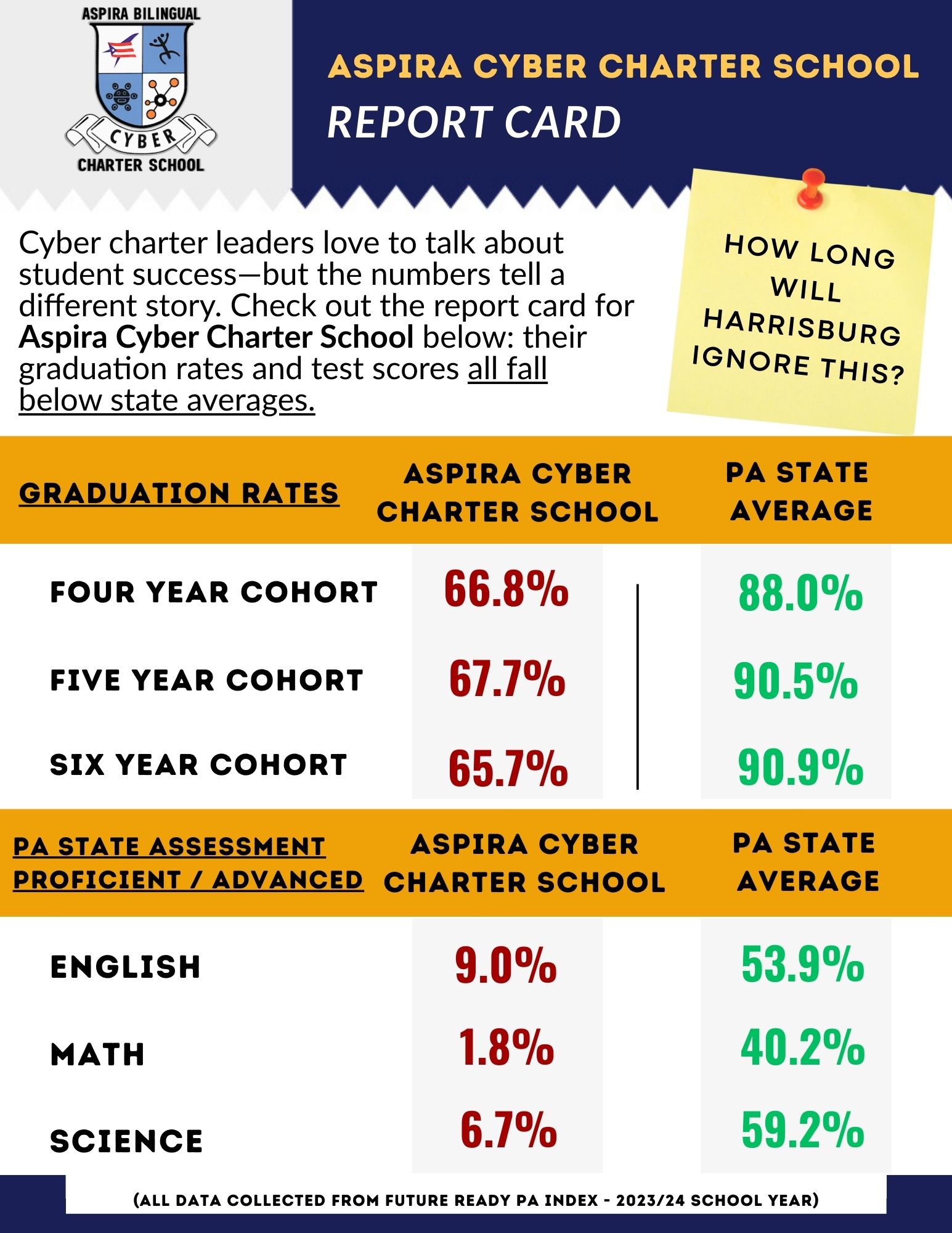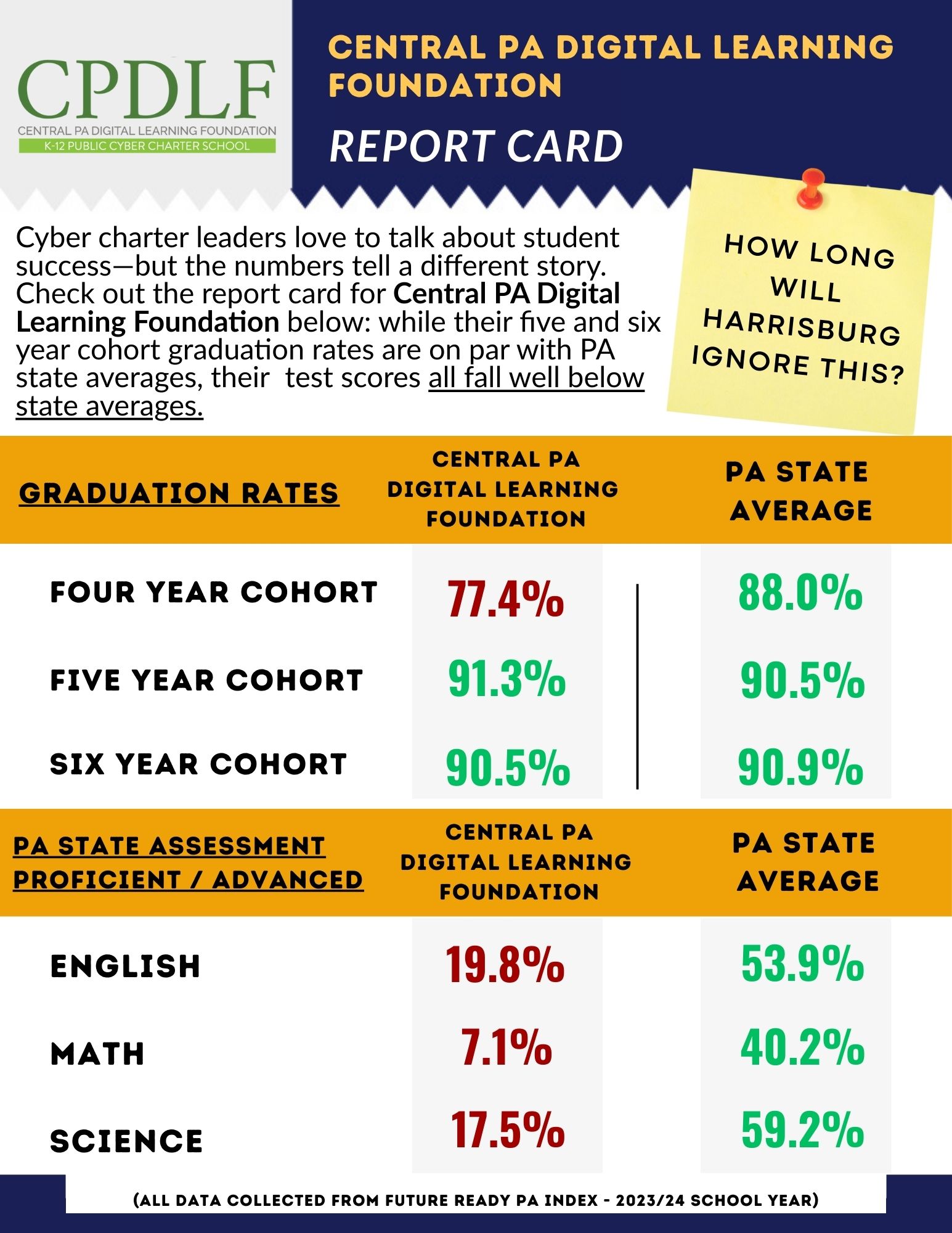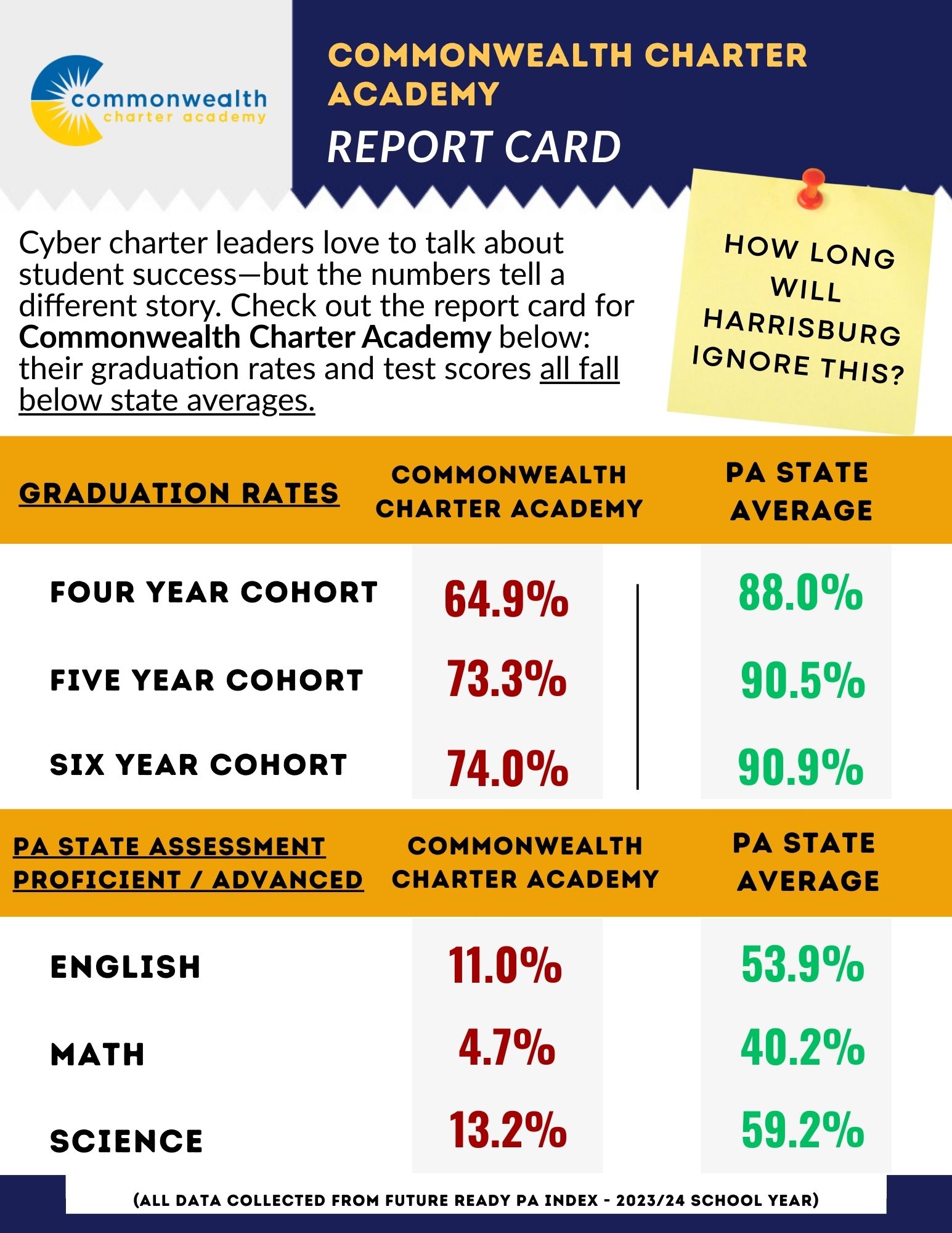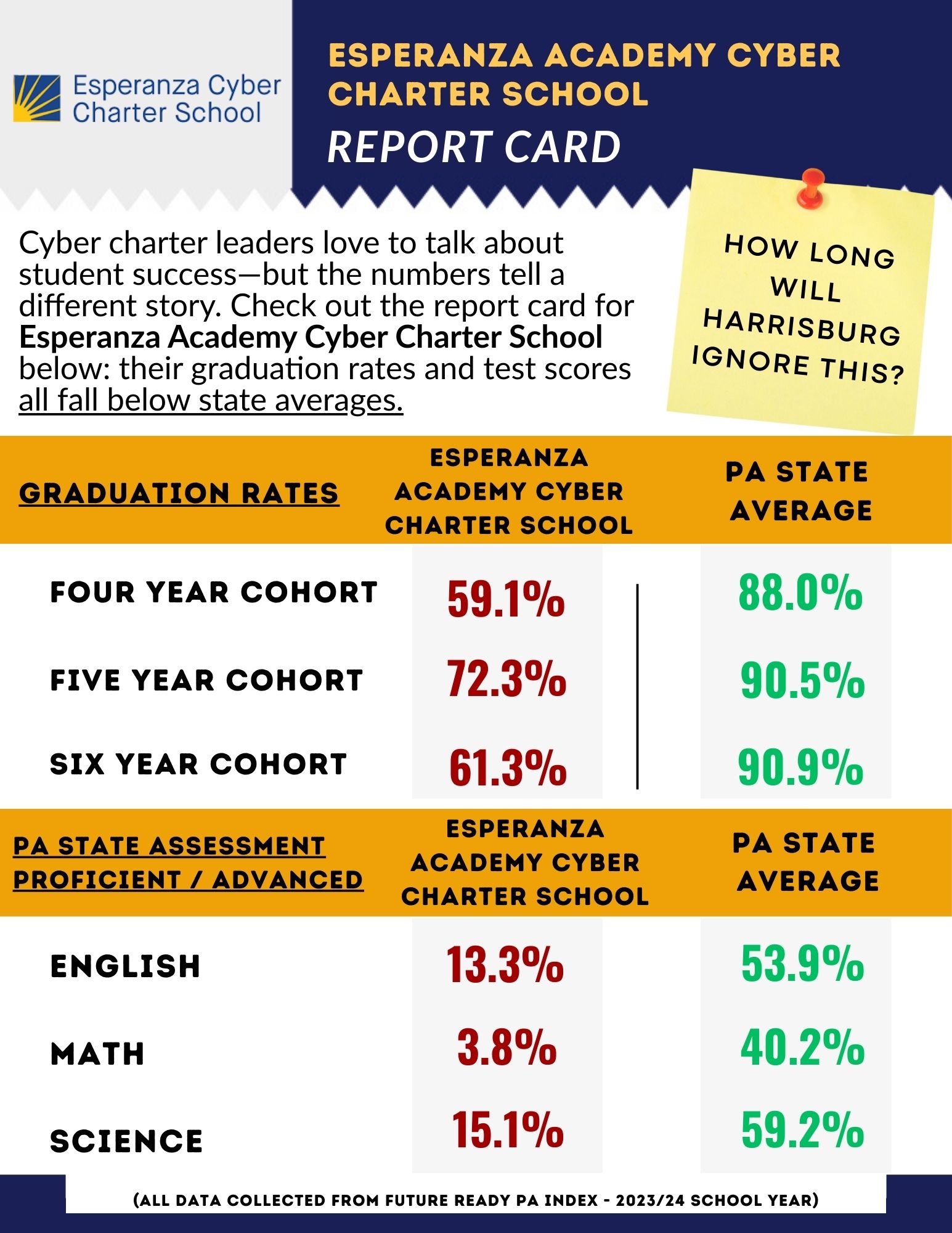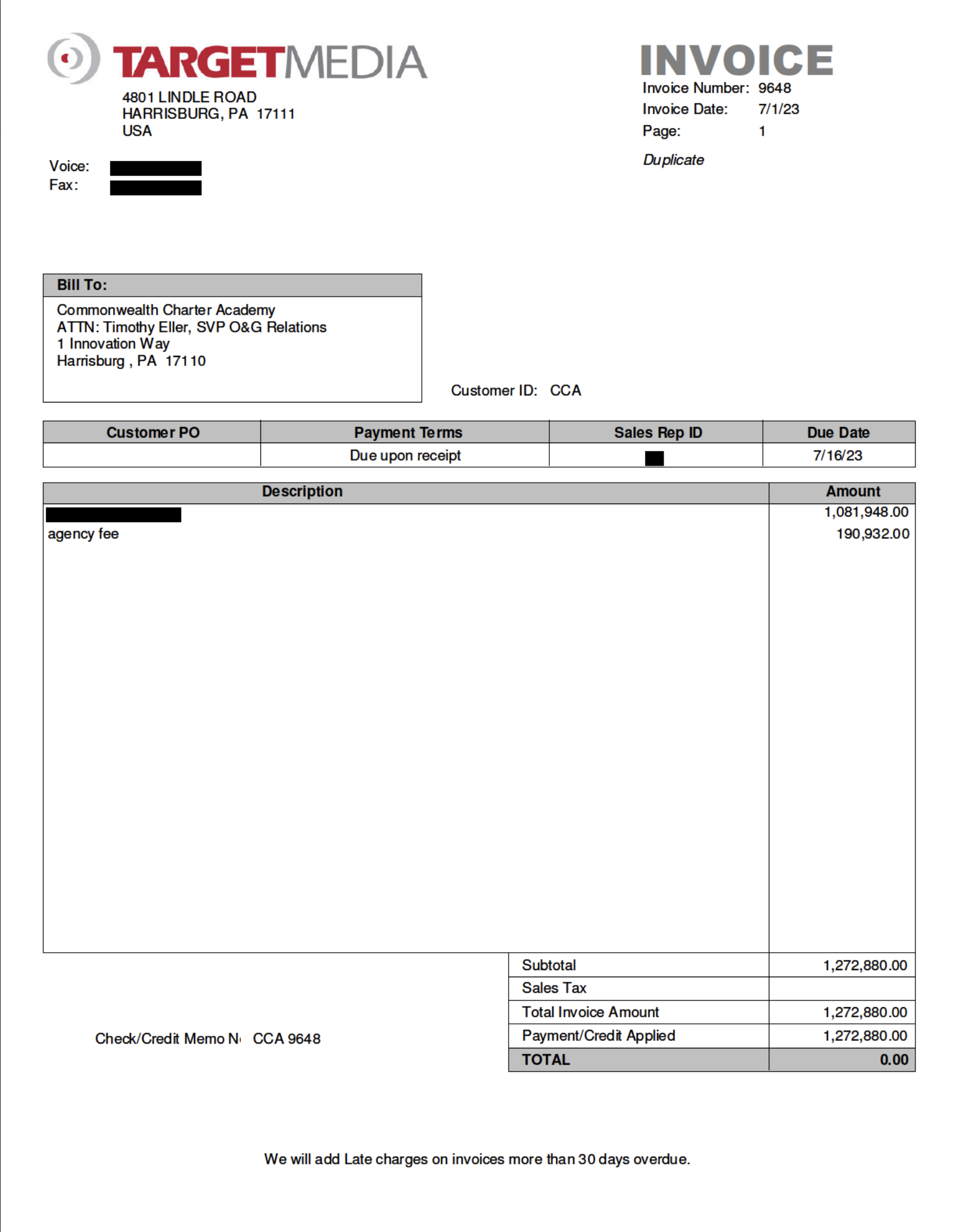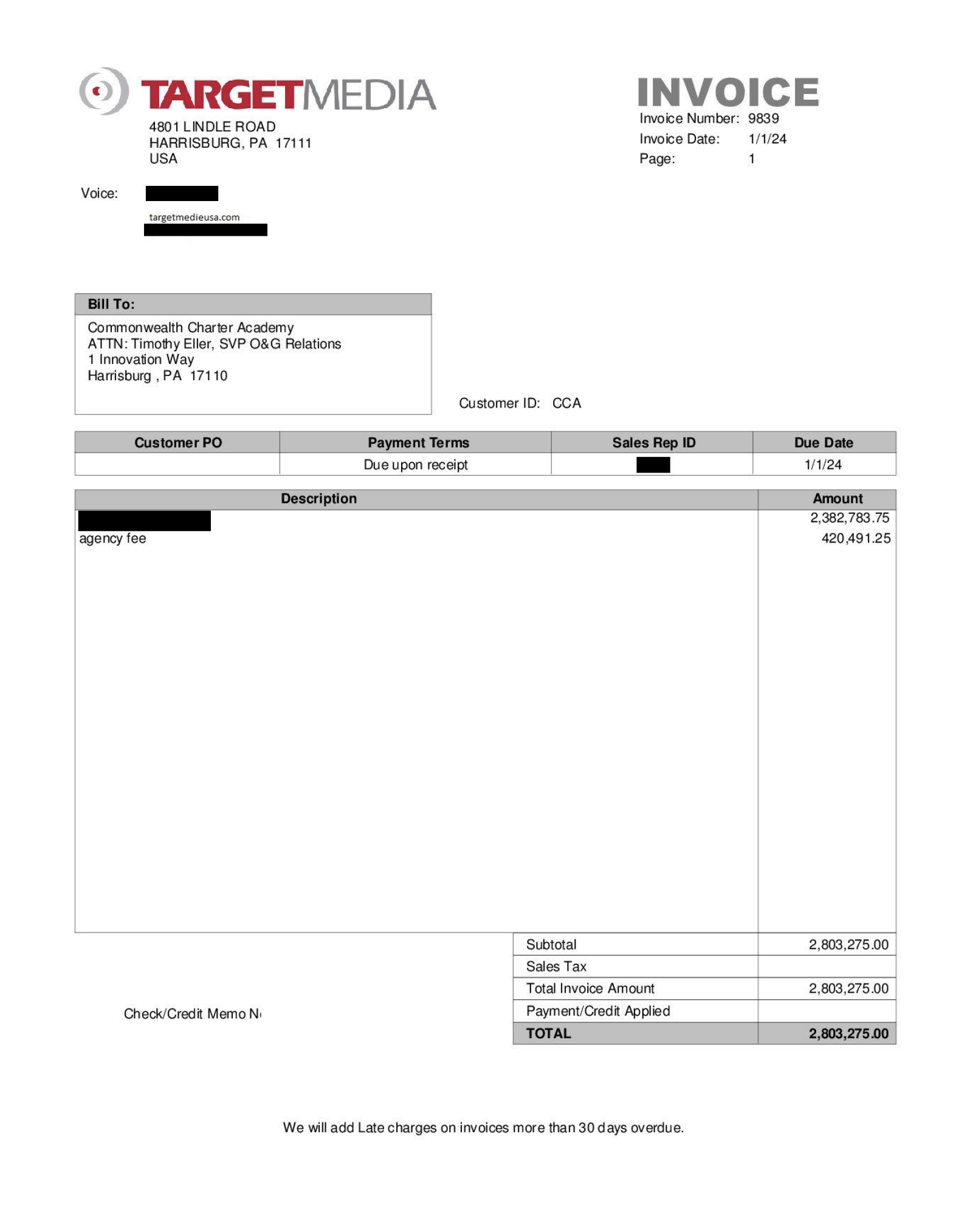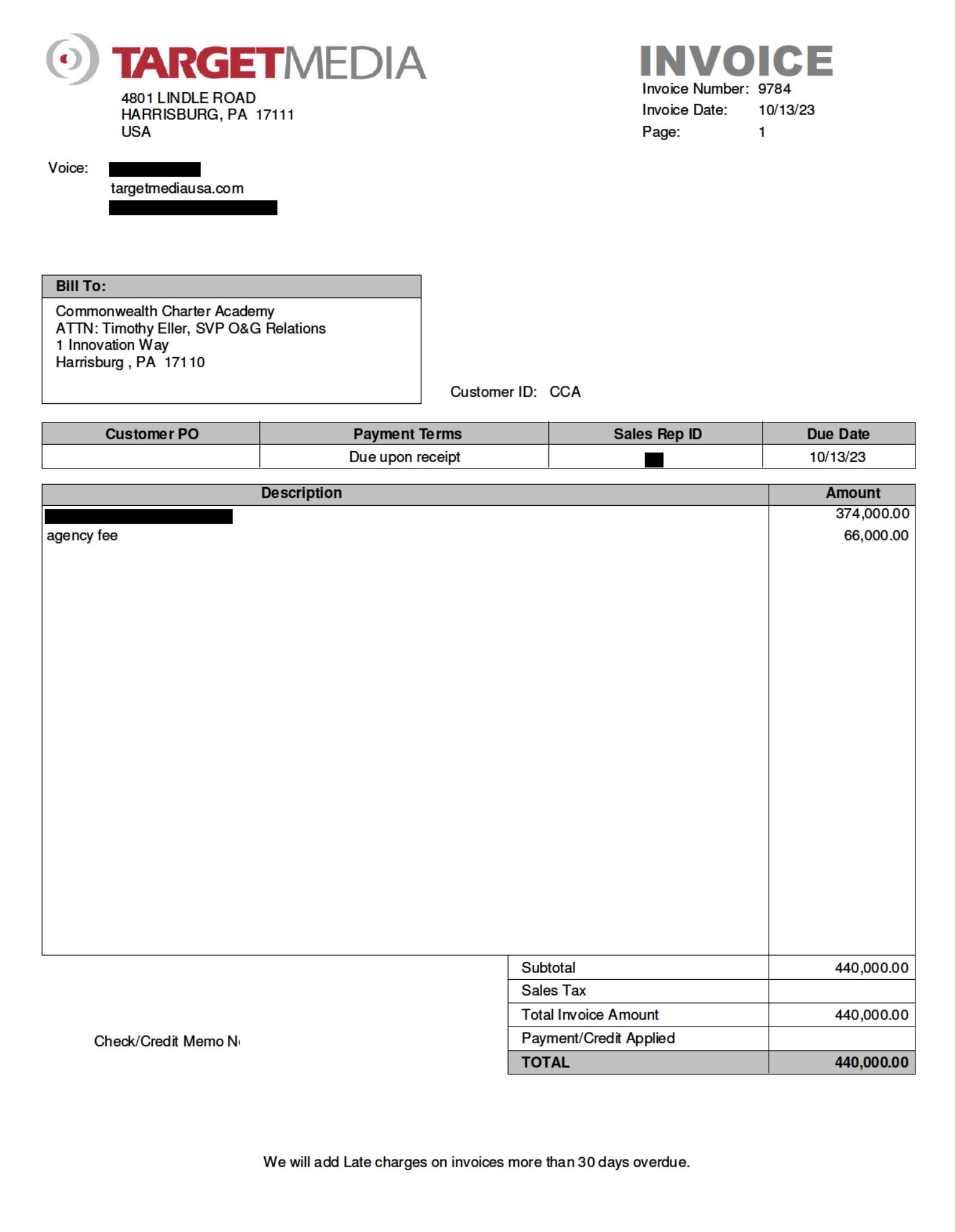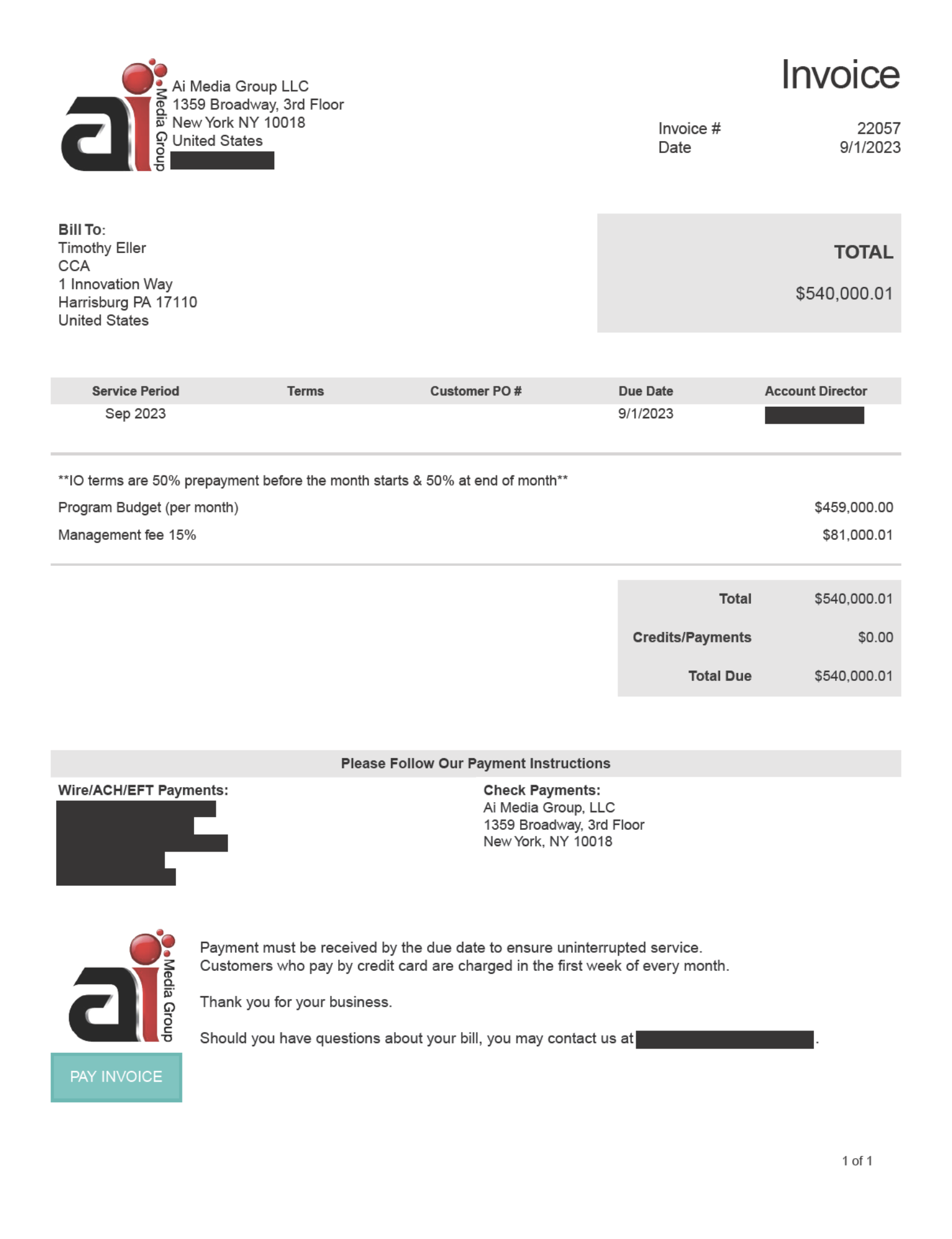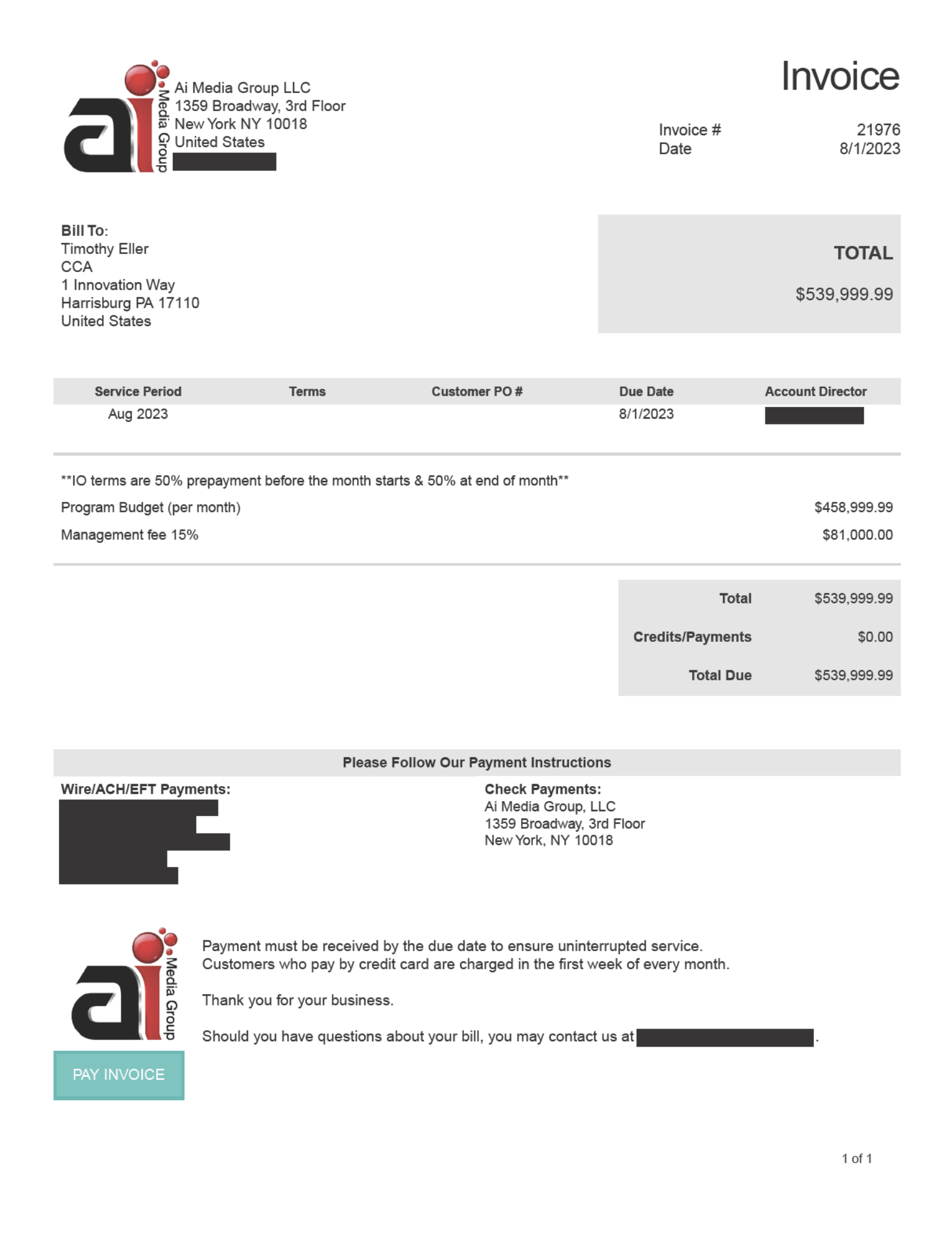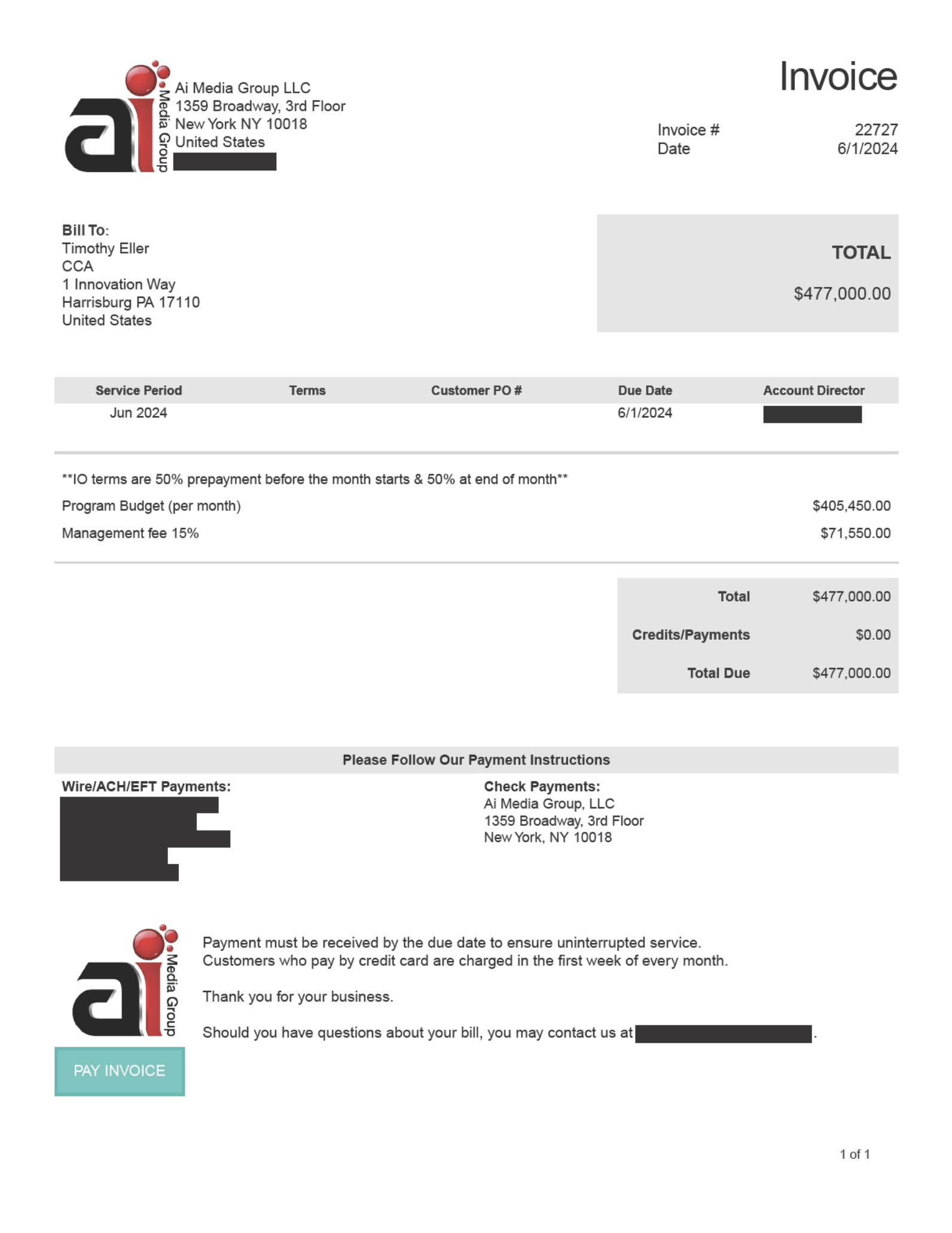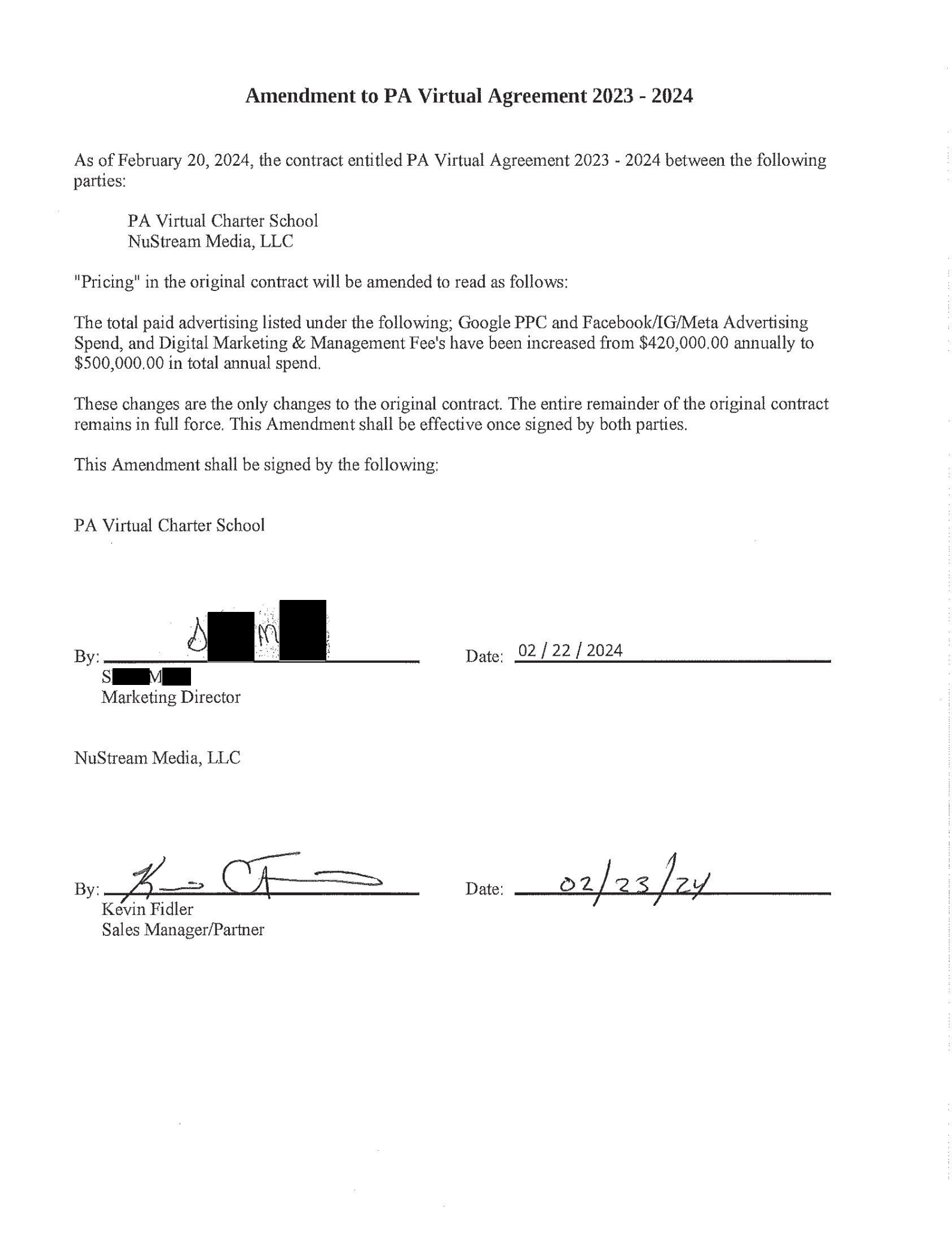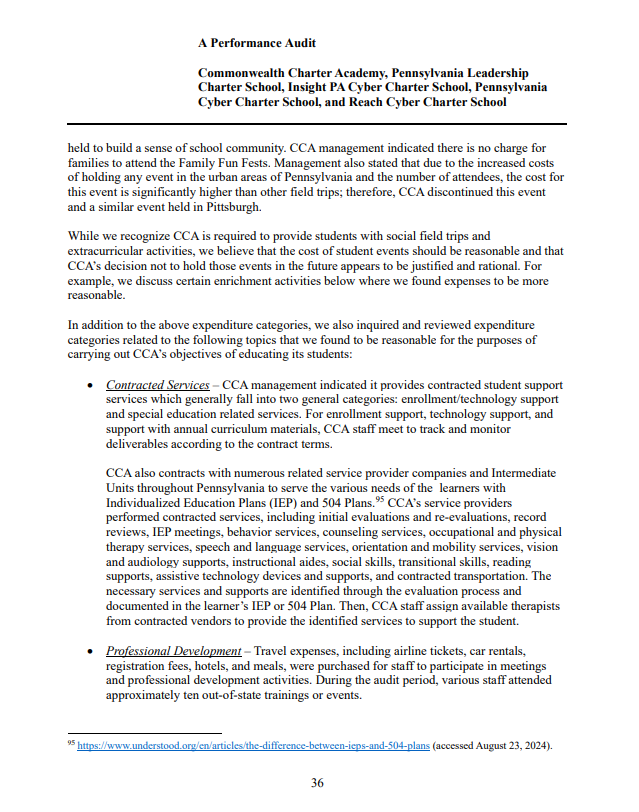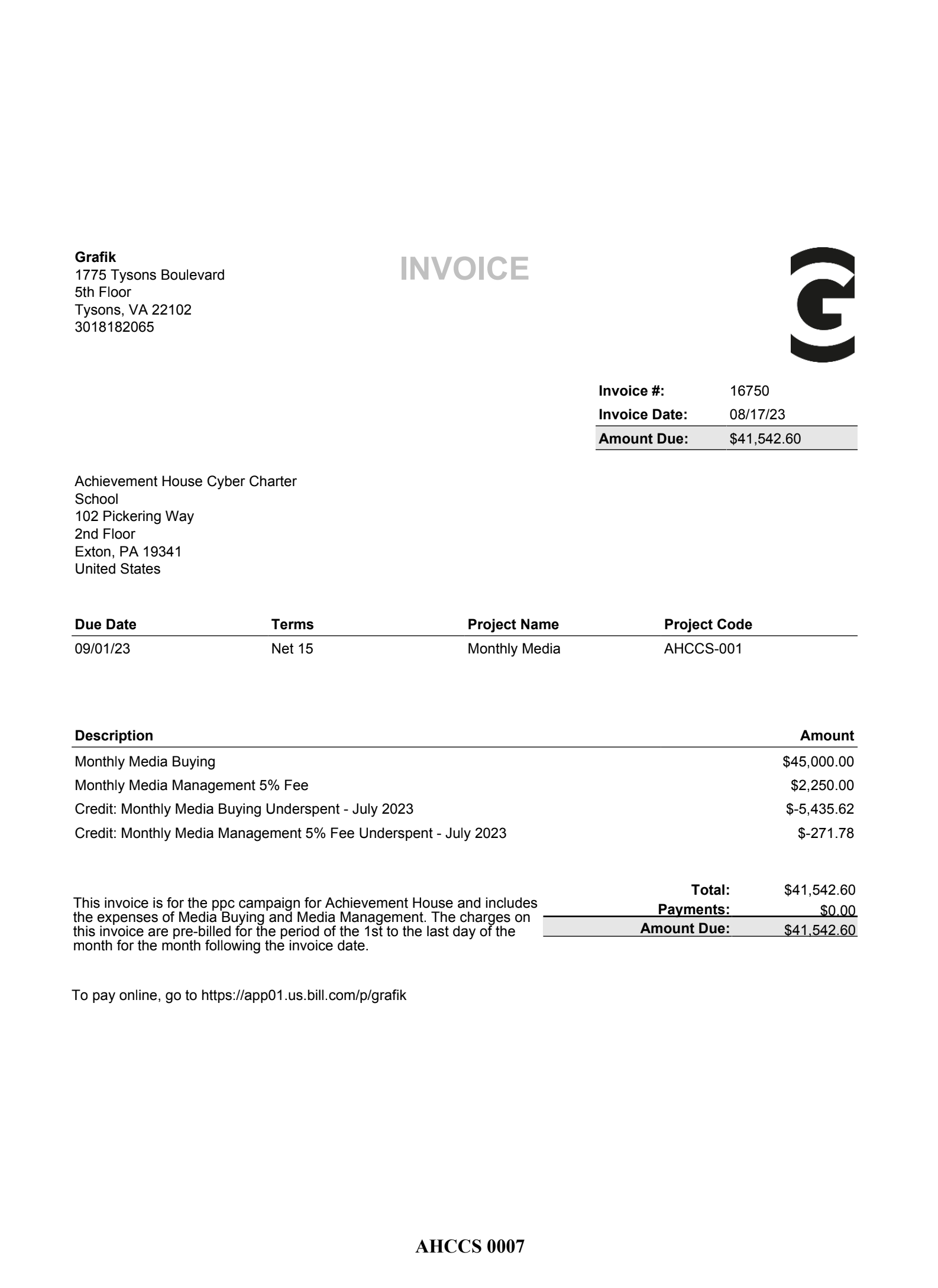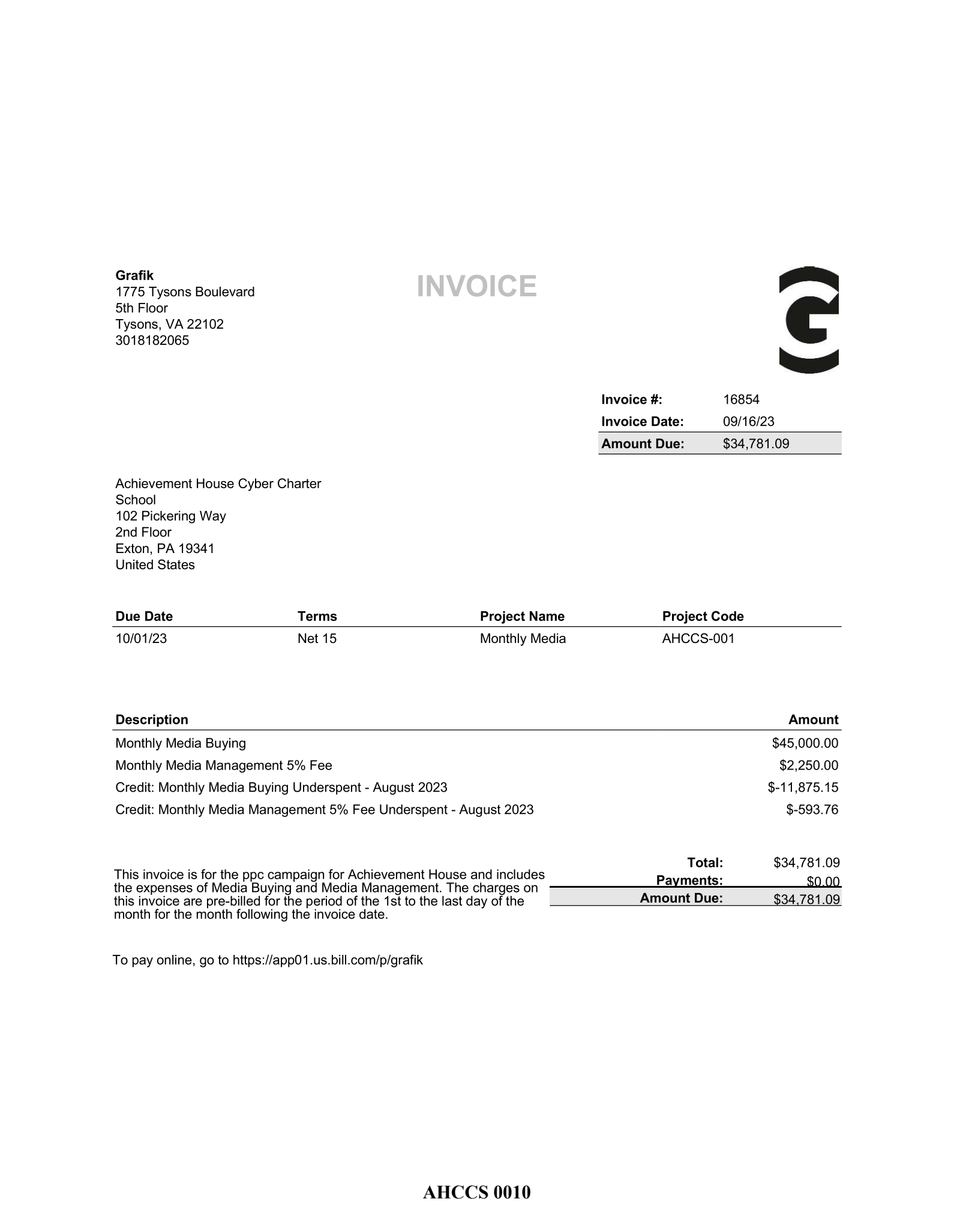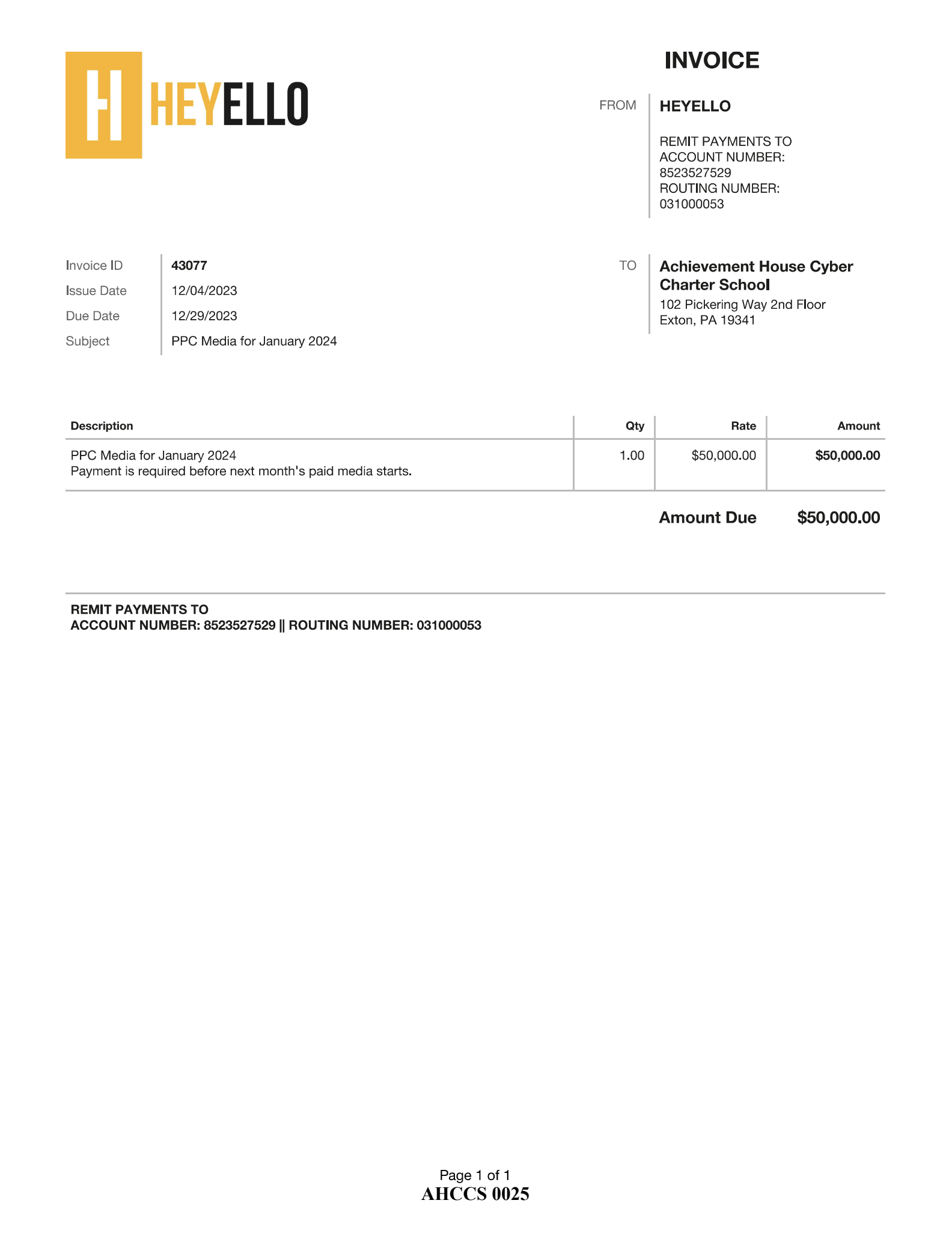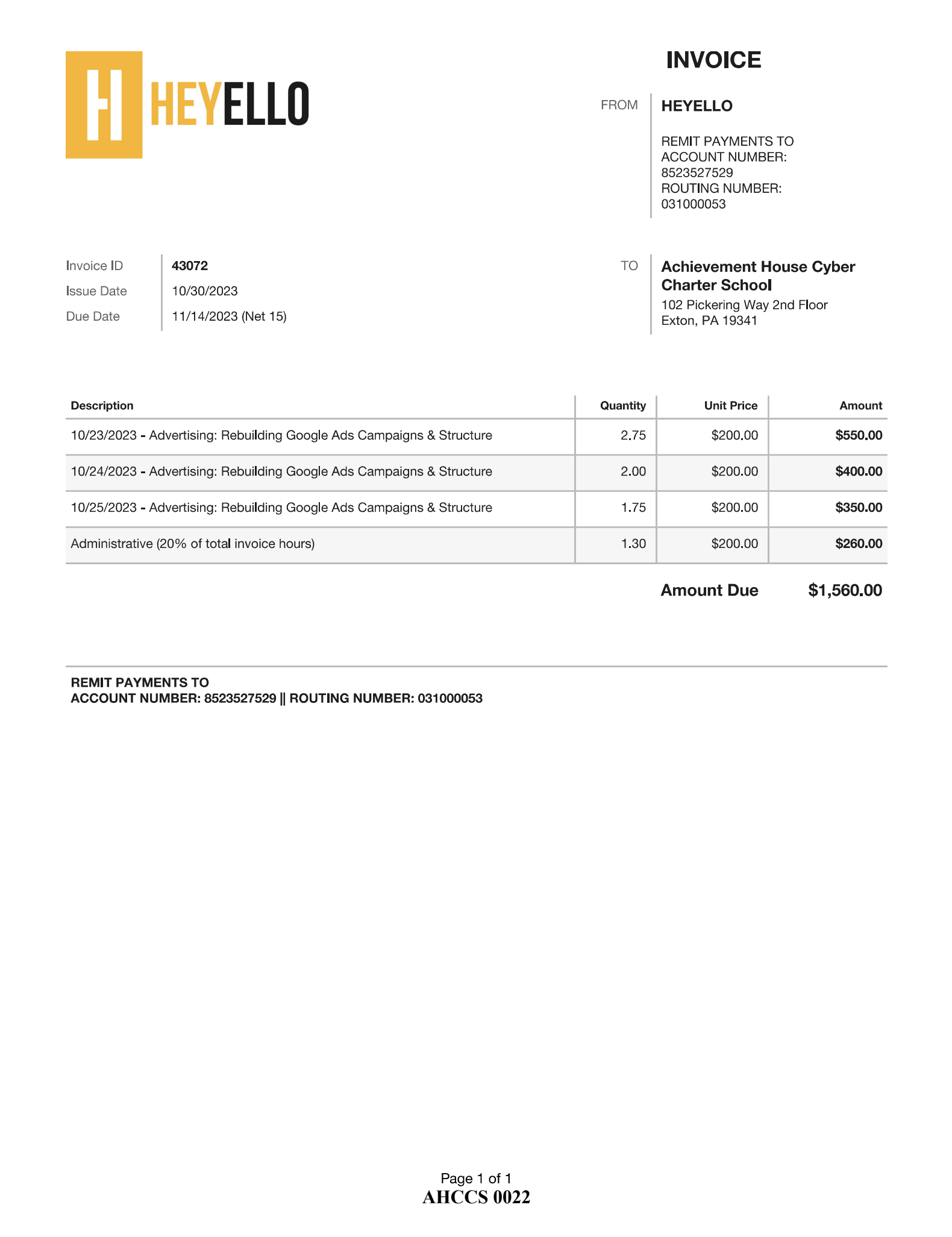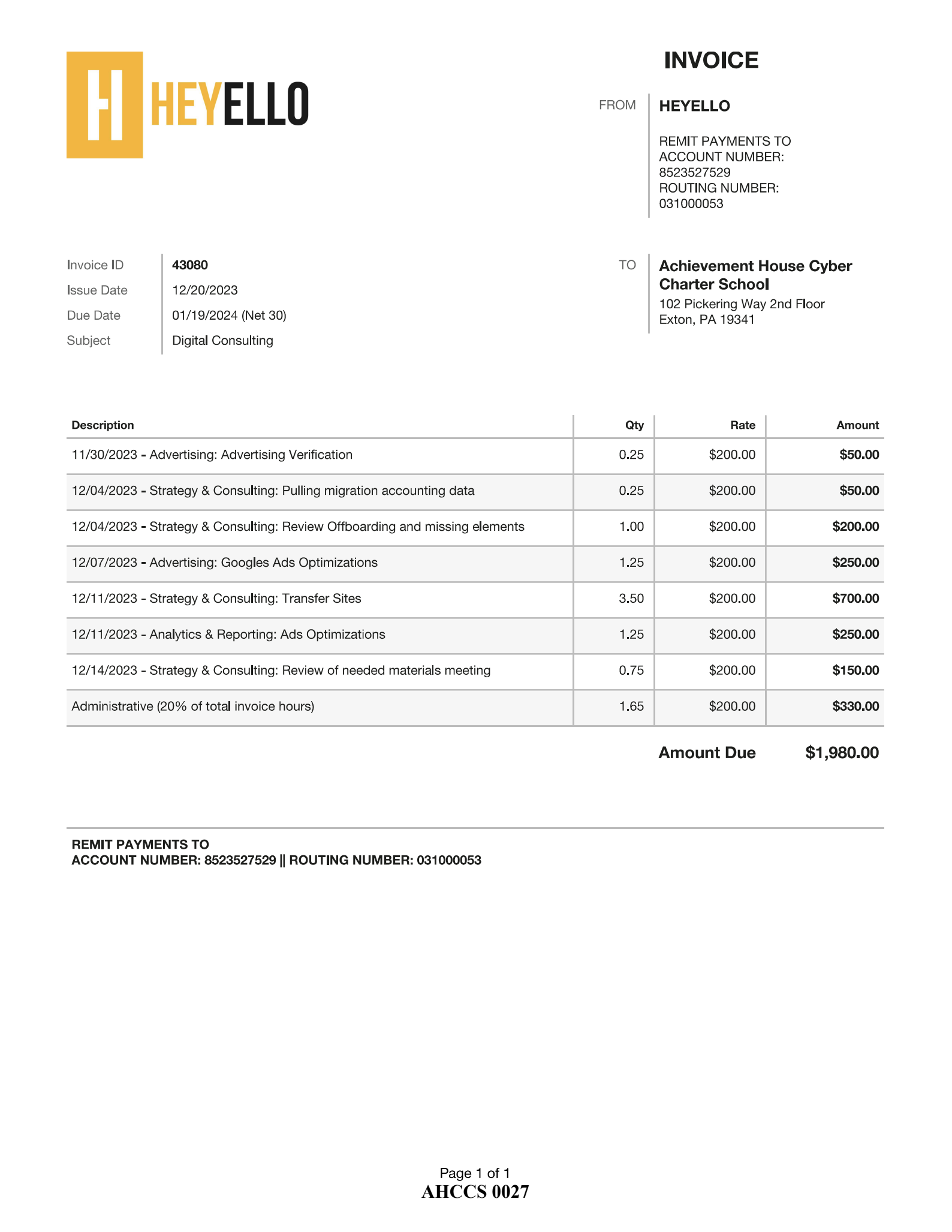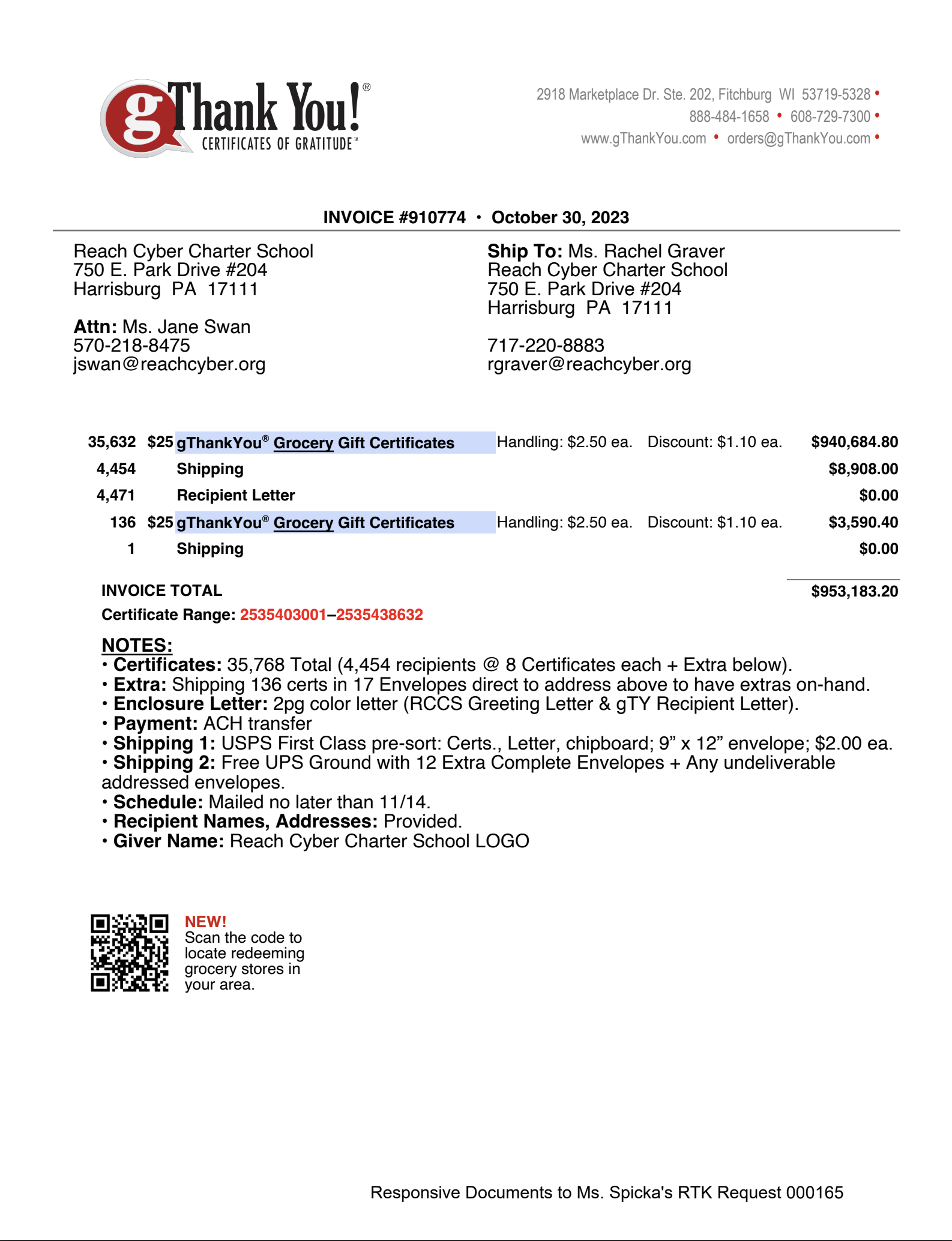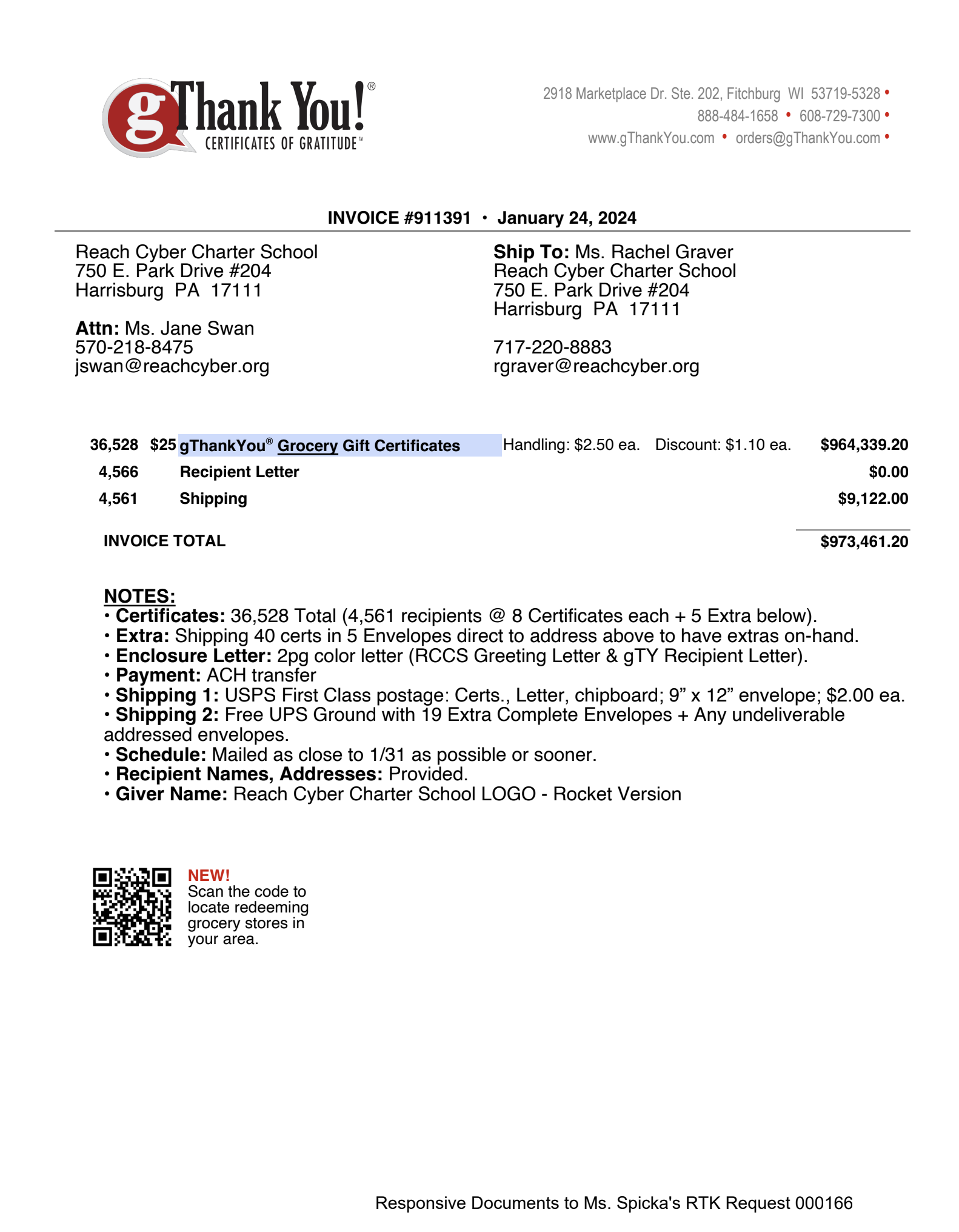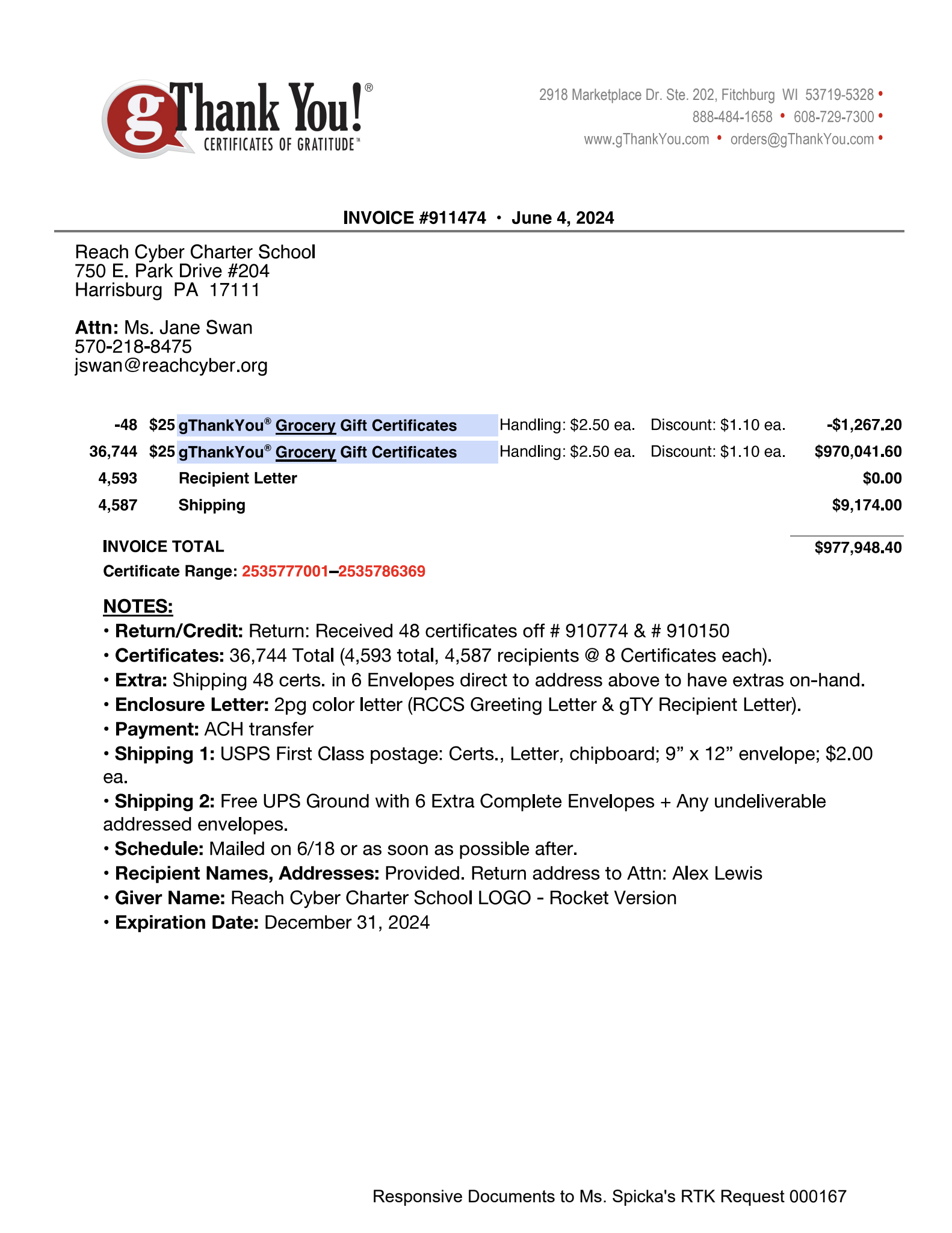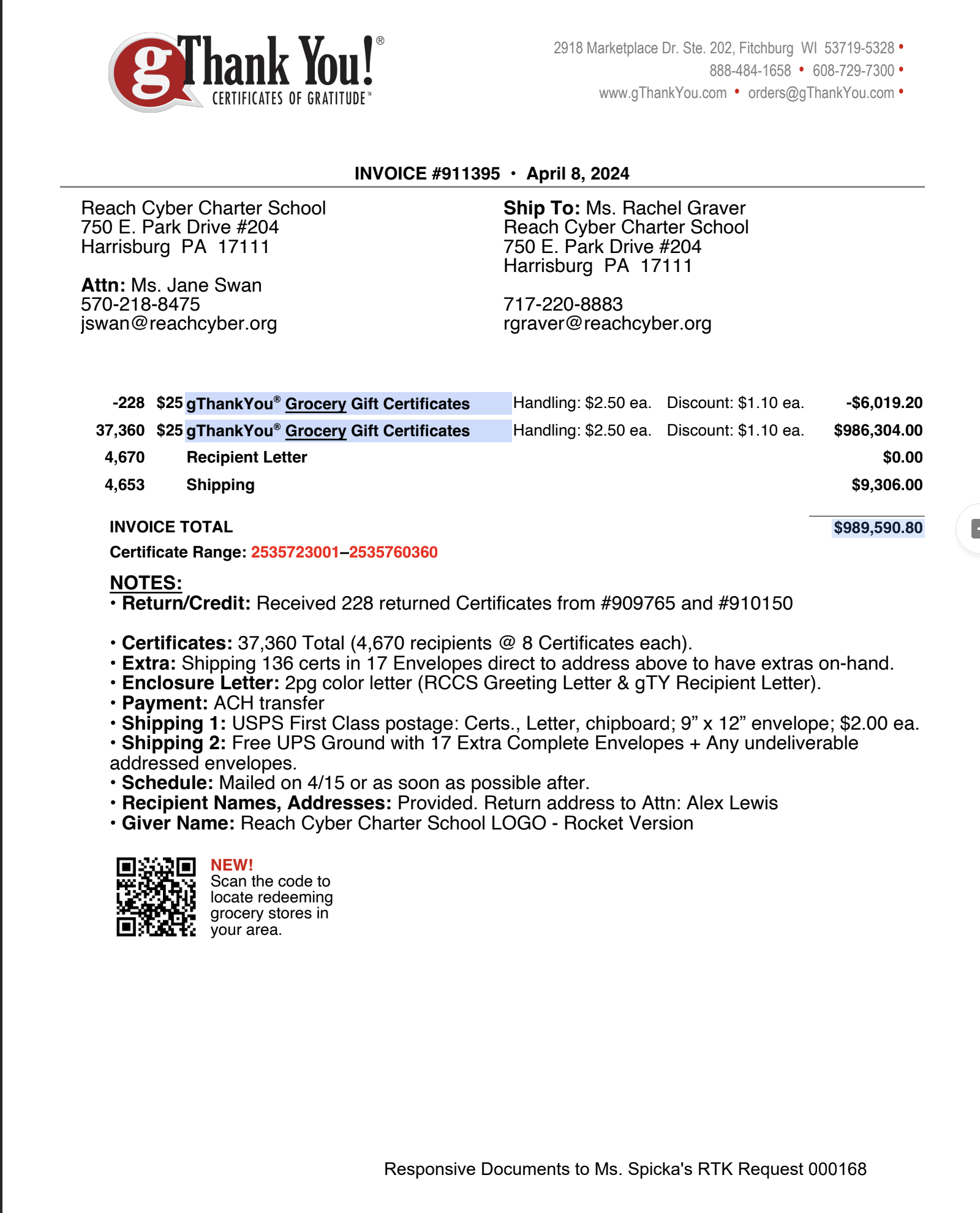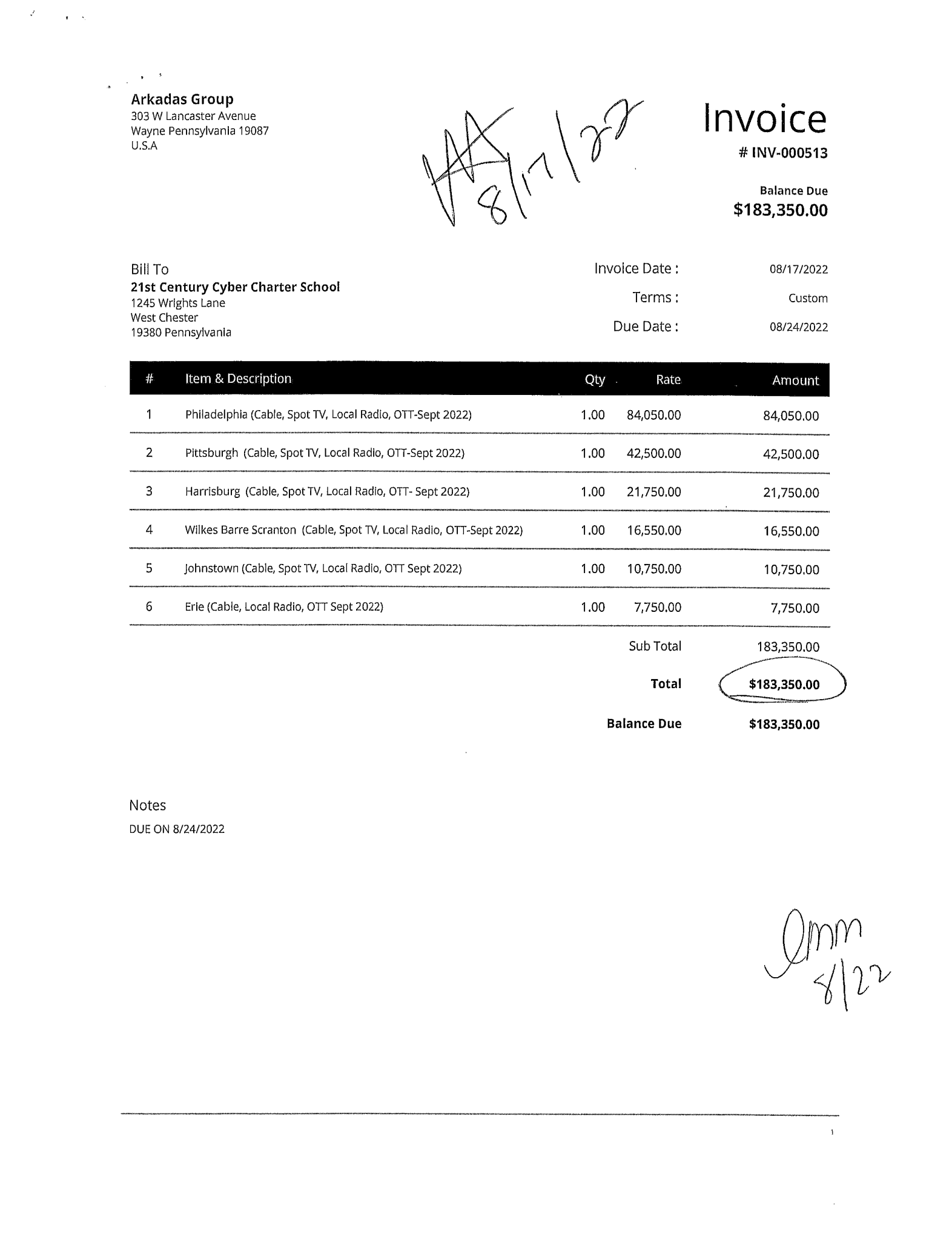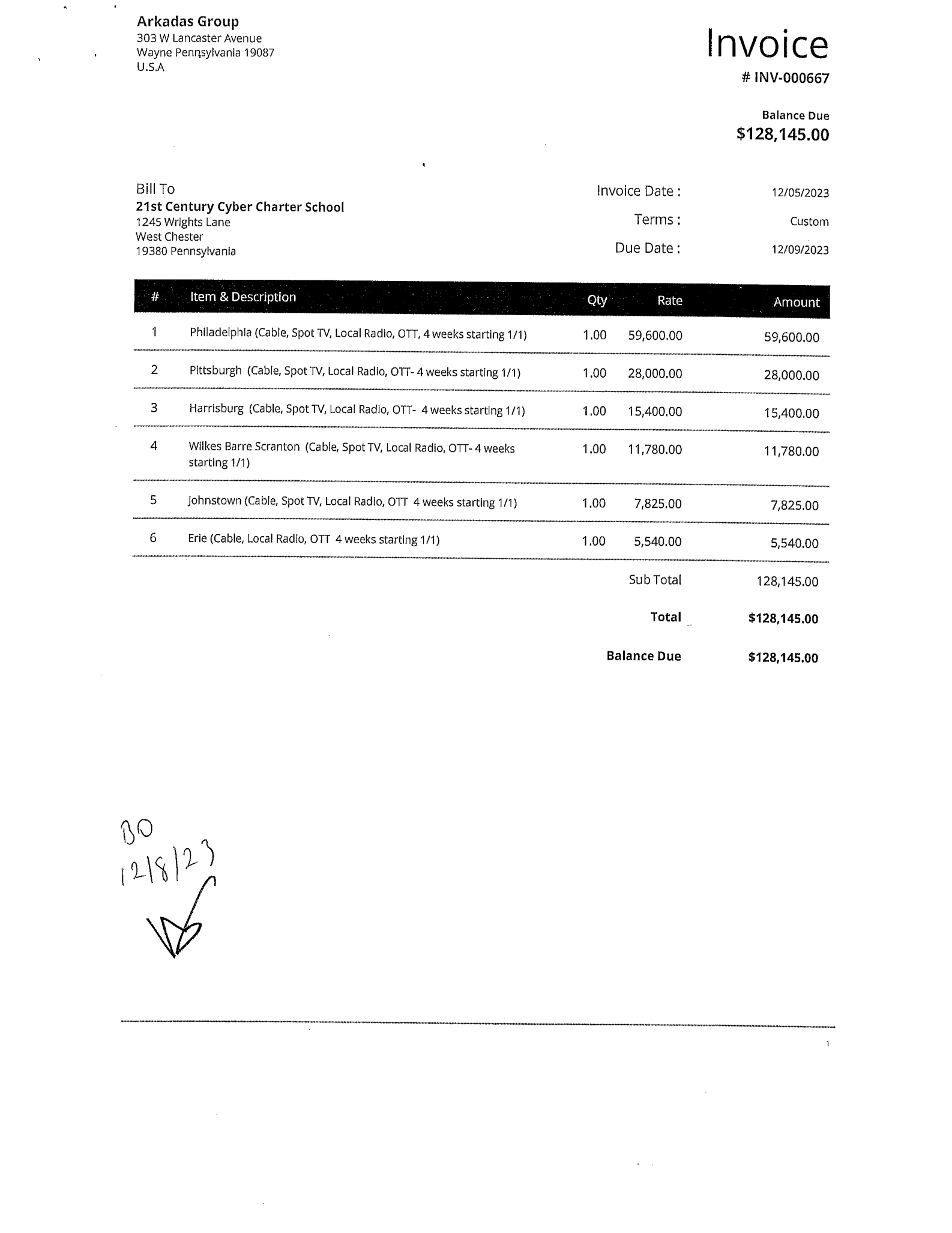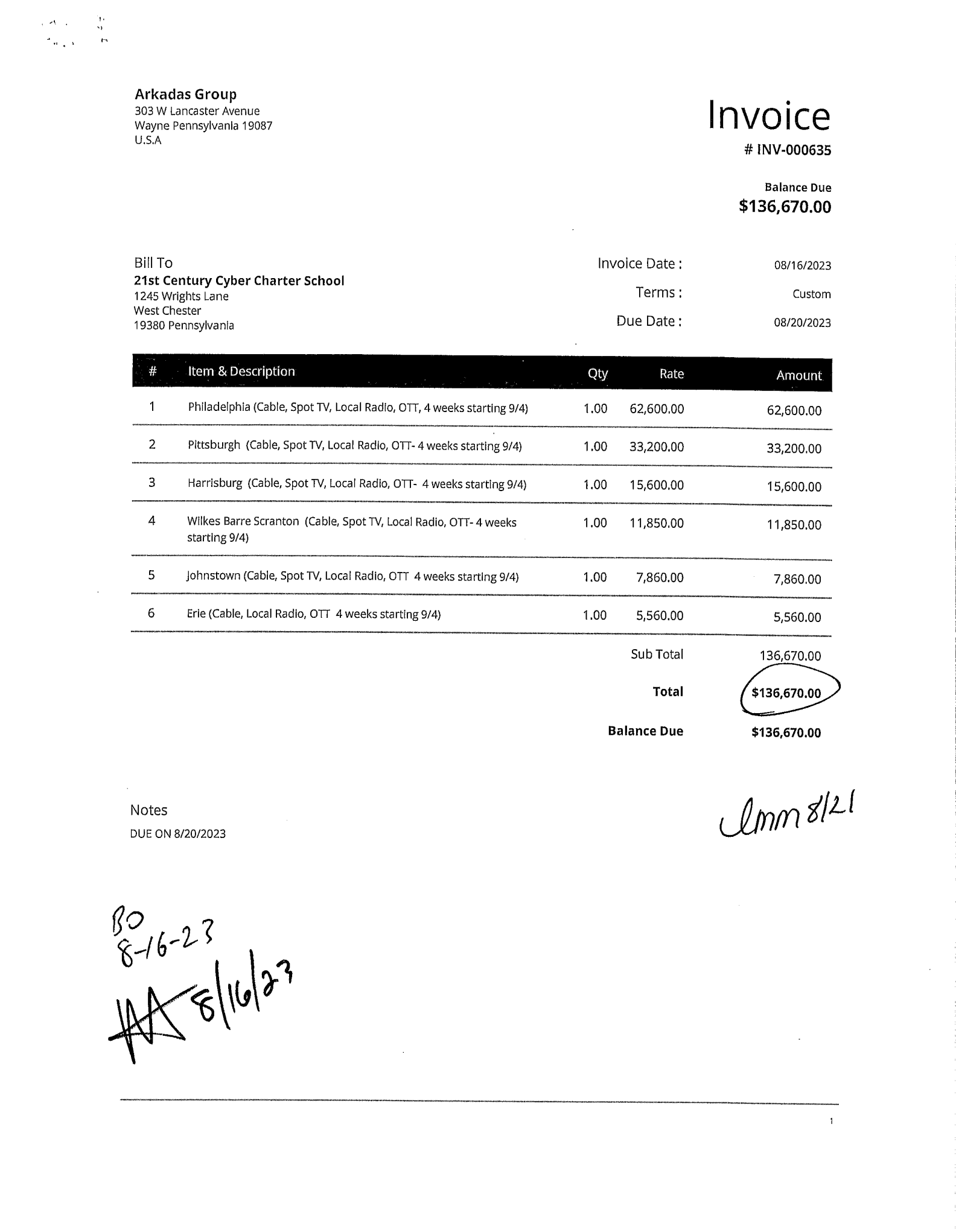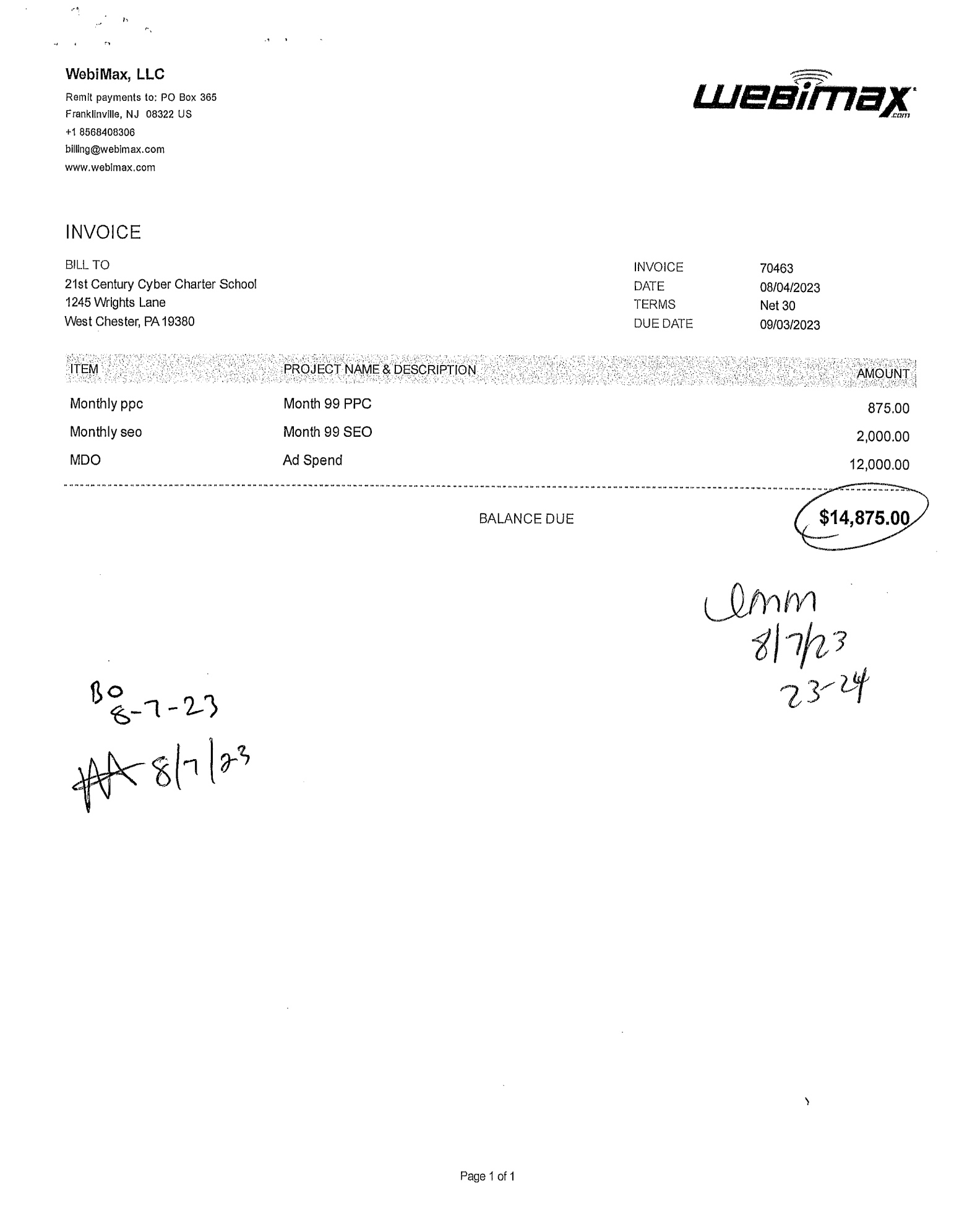We’ve had so much waste to expose… we had to split the page.
There are now so many Waste of the Week reports that the page couldn’t even load properly anymore. To view the second round of our Waste of the Week updates, click here.
How long is Pennsylvania’s legislature going to let this kind of wasteful spending continue?
Week Seventeen to Twenty-One: Cyber Charter “Report Cards”
We’re shining a light on how Pennsylvania’s cyber charter schools are really performing, and spoiler alert, it’s not very well. Each week, we’re releasing a new Cyber Charter Report Card that breaks down graduation rates for four, five, and six year cohorts, as well as test scores for English, Math, and Science on the PA State Assessment.
These schools have spent big to bring students in—but most are not delivering when it comes to graduation rates or test results. Click to see each individual report card below:
Week Sixteen: Philadelphia Phillies Tickets
As the MLB heads into the All-Star break, we thought it might be a good time to show how many of your tax dollars have gone to Phillies tickets, parking, and food for families—courtesy of Pennsylvania’s largest cyber charter school.
Here’s yet another shocking example of what zero accountability for PA cyber charter schools looks like:
A Right-to-Know request revealed 21 pages of invoices showing Commonwealth Charter Academy spent tens of thousands of public dollars on Phillies outings.
⚾ One invoice alone? 2,400 tickets for a single game on July 24, 2023—$52,800 in taxpayer money.
That’s an entire stadium section. Paid for by you.
At a time when public schools across the state are scraping together funds for classroom essentials, this kind of unchecked spending is a swing and a miss for fiscal responsibility.
View the full invoice set here -> http://bit.ly/3Iw8IoE
Click invoices to enlarge.
Week Fifteen: Commonwealth Charter Academy
For week fifteen, we invite you to examine the invoices that Commonwealth Charter Academy provided to Education Voters of PA through a Right to Know request for expenses related to advertising and promotion for the 2023-2024 school year.
These invoices total $8,932,581.25 and include invoices for monthly media buys ranging from $160,000.00 to over $500,000.00, on top of additional radio, TV, and online advertising costs. Two invoices to the Target Media Group stand out in particular. One invoice totals $1,272,880.00 with an agency fee of $190,932.00 and an additional invoice totals $2,803,275.00 with an agency fee of $420,291.25.
On average, Commonwealth Charter Academy is spending approximately $378.61 per student per year on advertising and promotion expenses.
According to the most recent information reported on the Future Ready PA Index, Commonwealth Charter Academy enrolls 23593 students and is classified as a Comprehensive Support and Improvement (CSI) school.
Commonwealth Charter Academy had a four-year cohort graduation rate of 64.3% in the 2022-2023 school year. The statewide average for that school year was 87.6%. PA Cyber Charter is below statewide averages in percentage of “proficient or advanced students” for Pennsylvania State Assessments in English (11.0%), Math (4.7%), and Science (13.2%). All student groups did not meet interim goal/improvement targets for all three subjects.
Click invoices to enlarge.
Week Fourteen: Sports Sponsorships
For Week Fourteen, we’re turning our attention to the surprising number of sports sponsorships funded by taxpayer dollars at Pennsylvania’s cyber charter schools. These aren’t sponsorships of local high school teams—instead, they’re high-dollar advertising deals with professional sports teams, funded with public education dollars.
Here are just a few of the invoices we uncovered. It’s important to note that Pennsylvania’s largest cyber charter, Commonwealth Charter Academy, now bundles all of its marketing expenses into a single, unitemized invoice—making it impossible to know exactly how much they’re spending. But one thing’s clear: being the sponsor of the Ice Level Lounge for the Wilkes-Barre/Scranton Penguins can’t be cheap. Scroll down to see photos of this lavish sponsorship paid for with public dollars.
These kinds of expenditures raise serious questions about priorities: why are public schools cutting counselors and classroom programs while cyber charters spend on marketing deals with sports organizations?
Invoices include:
Pittsburgh Pirates Yearbook Ad – 21st Century Cyber Charter – $5000.00 (x2)
Philadelphia Phillies Yearbook Sponsorship – 21st Century Cyber Charter – $15,000.00
Erie Seawolves Sponsorship – PA Virtual Cyber School – $12,500.00
Lehigh Valley Phantoms Sponsorship – PA Virtual Cyber Charter – $20,000.00
Reading Fightin’ Phils – PA Virtual Cyber Charter – $6250.00
York Professional Baseball Club – PA Virtual Cyber Charter – $10,800.00
Comcast Spectacor Sponsorship – PA Virtual Cyber Charter – $20,000.00
Click invoices to enlarge.
Week Thirteen: PA Cyber
For Week Thirteen of our Cyber Charter Waste of the Week series, we sifted through 1,261 invoices obtained through a Right to Know request from PA Cyber Charter School—and what we found is staggering.
The volume alone is a red flag. There are simply too many invoices to count the waste dollar-for-dollar, but one thing is crystal clear: PA Cyber is using public education dollars in questionable ways.
We found advertising excesses:
-
Hundreds of thousands spent on Google ads,
-
Over 500 pages of TV ad invoices,
-
Thousands more on swag, t-shirts, and promotional materials, and
-
Print ad invoices piling up across the state.
PA Cyber also lavished Pennsylvanians’ education tax dollars on sponsorships of these and many other nonprofit organizations and events:
-
$10,000 to sponsor an author visit at the Beaver County Library System,
-
$7,000 to the Beaver County Chamber of Commerce for event tickets, sponsorship of a Legislative Cruise, and more,
-
$1,000 to the Erie Philharmonic,
-
$1,000 to the United Way’s Gold Recognition Dinner,
-
$1,000 for Erie Small Business sponsorship,
-
$500 for PA Senator Elder Vogel’s “Kids Extravaganza,” and
-
Over $40,000 for sponsorships of the Carnegie Museums.
Cyber charter schools are supposed to educate students—not be corporate sponsors for community galas and benefactors of local nonprofits.
Academic Performance
PA Cyber ranks below PA State averages in four major categories:
- Four-year graduation rate: 61.0% (Statewide average: 87.6%)
- English proficiency: 27.4% (Below state average)
- Math proficiency: 12.5% (Below state average)
- Science proficiency: 30.9% (Below state average)
Every student group failed to meet statewide improvement targets in all subjects.
Click invoices to enlarge.
Week Twelve: Central PA Digital Learning Foundation
For week twelve, we invite you to examine the invoices that Central PA Digital Learning Foundation provided to Education Voters of PA through a Right to Know request for expenses related to advertising and promotion for the 2023-2024 school year.
These invoices total $63,336.05 and includes expenses for a marketing retainer, social media expenses, and gift cards for stores like Amazon, Sheetz, and others. On average, Central PA Digital Learning Foundation is spending $328.17 per student per year on advertising and promotion expenses.
According to the most recent information reported on the Future Ready PA Index, Central PA Digital Learning Foundation enrolls 193 students and is classified as a Comprehensive Support and Improvement (CSI) school.
Central PA Digital Learning Foundation had a four-year cohort graduation rate of 60% in the 2022-2023 school year. The statewide average for that school year was 87.6%. Central PA Digital Learning Foundation Cyber Charter is below statewide averages in percentage of “proficient or advanced students” for Pennsylvania State Assessments in English (19.8%), Math (7.1%), and Science (17.5%). All student groups did not meet interim goal/improvement targets for all three subjects.
Click invoices to enlarge.
Week Eleven: Pennsylvania Virtual Charter School
For week eleven, we invite you to examine the invoices that PA Virtual Charter School provided to Education Voters of PA through a Right to Know request for expenses related to advertising and promotion for the 2023-2024 school year.
These invoices total $790,438.21 and include sports sponsorships and a Hershey Park sponsorship, online ads, tv promo, as well as a single $500,000.00 one-year SEO management agreement.
According to the most recent information reported on the Future Ready PA Index, PA Virtual Cyber Charter enrolls 2955 students and is classified as a Targeted Support and Improvement (TSI) school.
PA Virtual Charter School had a four year cohort graduation rate of 83.2% in the 2022-2023 school year. The statewide average for that school year was 87.6%. PA Virtual Cyber is below statewide averages in percentage of “proficient or advanced students” for Pennsylvania State Assessments in English (34.5%), Math (16.0%), and Science (42.3%). All student groups did not meet interim goal/improvement targets for all three subjects.
Click invoices to enlarge.
Week Ten: House Education Committee holds hearing focused on cyber charter school outcomes
This week we are taking a break from posting invoices that show cyber charter waste to share information from the April 25th PA House Education Committee meeting that focused on student outcomes in cyber charters. Our executive director, Susan Spicka, and Dr. Sherri Smith, executive director of the Pennsylvania Association of School Administrators (PASA) were the first two panelists invited to provide comments.
Highlights from Susan Spicka’s Testimony:
-
In the 2023-2024 school year cyber charters accounted for 20% of student dropouts, despite enrolling just 5% of public school students in grades 7–12.
-
The average four-year cohort graduation rate for a cyber charter is 65% compared with 88% in school districts. The average six-year cohort graduation rate for cybers is 75% compared to 92% for school districts.
“Cyber charters are a billion dollar a year industry in Pennsylvania and for many, increasing revenue and enrollment appears to be a much higher priority than ensuring the students entrusted to their care are actually learning and will graduate and go into the world as adults with a diploma and the ability to support our workforce.” — Susan Spicka
Highlights from Dr. Sherri Smith’s Testimony:
“It is often pointed out that state assessments are not the appropriate measure of success for students, therefore I share this statement sent to me by one of our districts:
We were just sent a grade report for a student who attends Commonwealth Charter Academy. This student currently has an F in Algebra, a D- in Career Planning, an F in Entrepreneurship, an F in Health and Phys Ed, a D in Intro to Social Media, a D- in Life, and a D in United States History.
This student’s Cumulative GPA is 0.5006. It says that on his “OFFICIAL TRANSCRIPT.” And right next to that it reads, “Class Rank: 501 out of 3656.” Apparently, there are 3,000 ninth graders at Commonwealth Charter Academy who have worse grades than that.
As a state, we should be very concerned about the ongoing issue of low performance and participation compliance of cyber charter schools.” — Dr. Sherri Smith
Watch the full House Education Committee here here:
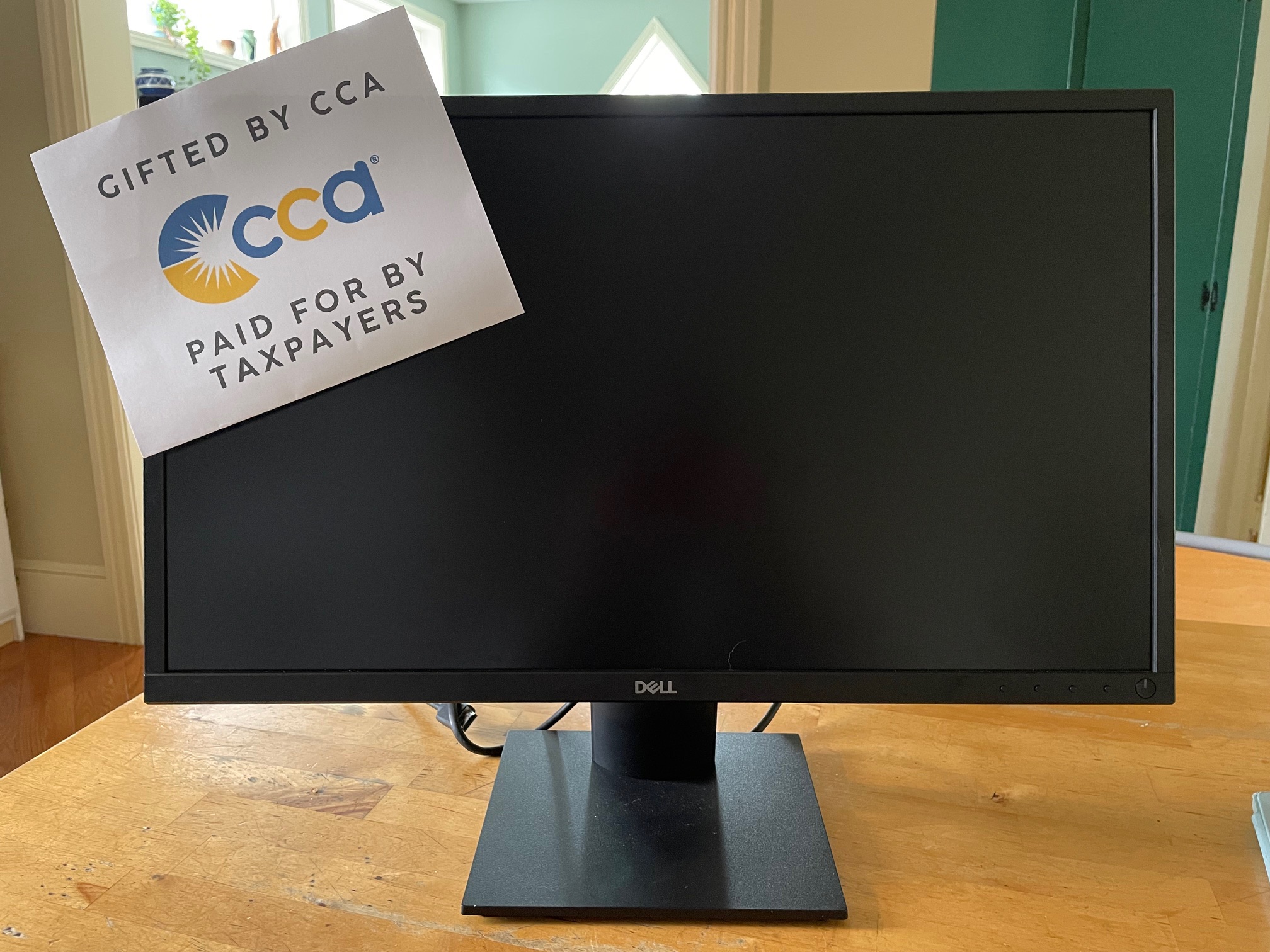
Susan brought this monitor to the House Education Committee meeting. It was given to her by a cyber charter parent whose child no longer wanted it. Apparently, the school does not require families to return these.
Week Nine: Reach Cyber Charter School
For week nine, we invite you to examine the invoices that Reach Cyber Charter School provided to Education Voters of PA through a Right to Know request for expenses related to advertising and promotion for the 2023-2024 school year.
These invoices total $5,169,737.60 and includes thousands of dollars on month TV ads, with single TV advertising invoices reaching over $100,000.00 in a single month. There is a single invoice for gift cards purchased from Target for $87,500.00 as well as a single invoice for gift cards from Dominos Pizza for $54,000.00. An additional invoice shows a $57,500.00 spend for the first of two payments on a commercial video shoot.
On average, Reach Cyber Charter School is spending approximately $840.33 per student per year on advertising and promotion expenses.
According to the most recent information reported on the Future Ready PA Index, Reach Cyber Charter enrolls 6152 students and is classified as a Comprehensive Support and Improvement (CSI) school.
Reach Cyber Charter School had a four year cohort graduation rate of 80.0% in the 2022-2023 school year. The statewide average for that school year was 87.6%. Reach Cyber Charter is below statewide averages in percentage of “proficient or advanced students” for Pennsylvania State Assessments in English (19.3%), Math (6.3%), and Science (24.2%). All student groups did not meet interim goal/improvement targets for all three subjects.
Click invoices to enlarge.
Week Eight: Agora Cyber Charter
For week eight, we invite you to examine the invoices that Agora Cyber Charter School provided to Education Voters of PA through a Right to Know request for expenses related to advertising and promotion for the 2023-2024 school year.
These invoices total $903,498.17 and includes $774,111.19 to a single company (Aloysius, Butler, & Clark) for marketing, advertising, and public relations fees. On average, PA Distance Learning Center is spending $203.86 per student per year on advertising and promotion expenses.
According to the most recent information reported on the Future Ready PA Index, Agora Cyber Charter School enrolls 4432 students and is classified as a Comprehensive Support and Improvement (CSI) school.
Agora Cyber Charter had a four-year cohort graduation rate of 50.6% in the 2022-2023 school year. The statewide average for that school year was 87.6%. Agora Cyber Charter is below statewide averages in percentage of “proficient or advanced students” for Pennsylvania State Assessments in English (24.7%), Math (7.2%), and Science (34.8%). All student groups did not meet interim goal/improvement targets for all three subjects.
Click invoices to enlarge.
Week Seven: A 65% graduation rate, on average
This week, we’re examining the staggeringly abysmal student performance in Pennsylvania’s cyber charter schools.
According to the 2023–2024 Future Ready PA Index:
🔹 The four-year cohort graduation rate for cyber charters averages just 65%, more than 20% lower than the state average of 87%.
🔹 Every cyber charter school is currently performing in the lowest 5% of schools in Pennsylvania.
🔹 Student performance in cybers falls drastically below state averages in English, Math, and Science proficiency.
🔹 Math scores are especially alarming. Over half of the cyber charters (9 of 14) had fewer than 10% of students scoring proficient.
A recent report from Good Jobs First, “Pennsylvania Cyber Charter Schools Fail Black and Brown Students,” documents that nearly four times as many Black students in school districts are proficient in math and algebra compared to their counterparts in cyber charters; three times as many Hispanic students are proficient in math. Black and Hispanic students enrolled in school districts are 1.5 times as likely to be proficient in science and biology compared to students in cyber charters.
This disparity in student performance between students in district schools and cyber charters is nothing new. For more than two decades Pennsylvania’s cyber charter schools have been among the lowest performing schools in the commonwealth. And Pennsylvanians pay a premium for this failure of more than $1 billion annually.
For many cyber charters, increasing revenue and enrollment appears to be a higher priority than ensuring the students in their care are actually learning and will graduate.
It’s time for this to change.
Right-sizing tuition for cyber charters by enacting a $8000/student regular education flat tuition rate will allow cyber charter schools to get back to the basics and focus on educating students without the distraction of building real estate empires, designing expensive marketing campaigns and the endless other work associated with figuring out how to spend/waste the hundreds of millions of dollars in excess funding they receive each year from Pennsylvania taxpayers.
Week Six: PA Distance Learning Center
For week six, we invite you to examine the invoices that PA Distance Learning Center provided to Education Voters of PA through a Right to Know request for expenses related to advertising and promotion for the 2023-2024 school year.
These invoices total $419,614.43 and includes thousands of dollars spent on Google and Facebook advertising, along with additional advertising expenses. On average, PA Distance Learning Center is spending $359.57 per student per year on advertising and promotion expenses.
According to the most recent information reported on the Future Ready PA Index, PA Distance Learning Center enrolls 1167 students and is classified as a Comprehensive Support and Improvement (CSI) school.
PA Distance Learning Center had a four-year cohort graduation rate of 59.6% in the 2022-2023 school year. The statewide average for that school year was 87.6%. PA Distance Cyber Charter is below statewide averages in percentage of “proficient or advanced students” for Pennsylvania State Assessments in English (21.6%), Math (8.2%), and Science (31.3%). All student groups did not meet interim goal/improvement targets for all three subjects.
Click invoices to enlarge.
Week Five: Commonwealth Charter Academy
Auditor General Tim DeFoor’s recent audit of Commonwealth Charter Academy found that CCA is providing its employees with a $400/month fuel stipend. In other words, CCA is using tax dollars from school districts that are intended to be invested in educating students to pay their employees to drive to work.
Excerpt from the audit
Fuel Stipends – CCA provided $2.4 million for fuel stipends for all employees that work full time in a FSC (Family Service Center) during the 2021-22 and 2022-23 fiscal years. CCA management indicated that after returning to in-person work, the CCA Board of Trustees implemented a temporary fuel stipend of $200 per pay ($400 per month) for any staff member working full time from an FSC.
CCA stated that it implemented a stipend in lieu of a salary or hourly pay adjustment to ensure equity to staff due to heightened gasoline prices recognizing that rising gasoline and other prices would negatively impact staff returning to in-person work at the FSC.
Management indicated that the stipend is reviewed annually and is currently still in effect. However, CCA did not provide any policy or limitations to the stipends, such as limits based on the distance the employee is from the FSC. It appears the stipend was provided even if employees were commuting a short distance during the audit period.
Commonwealth Charter Academy Performance Audit, p. 35. (Our emphasis and spacing).
Week Four: Achievement House Cyber Charter School
“For week four, we invite you to examine the invoices that Achievement House Cyber Charter School provided to Education Voters of PA through a Right to Know request for expenses related to advertising and promotion for the 2023-2024 school year.
These invoices total $694,504.16 and include invoices for monthly media buys ranging between $30,000 and $50,000, digital advertising and consulting fees, and PR services.
According to the most recent information reported on the Future Ready PA Index, Achievement House Cyber Charter School enrolls 1083 students and is classified as a Comprehensive Support and Improvement (CSI) school.
Achievement House Cyber Charter School had a four-year cohort graduation rate of 50% in the 2022-2023 school year. The statewide average for that school year was 87.6%. Achievement House Cyber Charter is below statewide averages in percentage of “proficient or advanced students” for Pennsylvania State Assessments in English (28.0%), Math (3.3%), and Science (10.9%). All student groups did not meet interim goal/improvement targets for all three subjects.
Click invoices to enlarge.
Week Three: Reach Cyber Charter School
Buckle up for week three.
Reach Cyber Charter School spent more than $4 million on gift cards for students during the 2023-2024 school year. These include nearly $3.9 million spent on grocery gift cards and more than $150,000 spent on gift cards to Dominos, Target, Walmart, Dunkin’, Five Below, and Booksamillion.
Records show some gift cards were provided as “state testing incentives” (p. 161) and “attendance rewards” (pp. 47, 67, 82, 98, 118, 136, and 151).
Let’s make this clear – every dollar that Reach Cyber Charter School spent on gift cards for students is a dollar that was paid by a Pennsylvania taxpayer. In fact, most of this money came from property taxes home and business owners paid to their local school districts.
According to the most recent information reported on the Future Ready PA Index, Reach Cyber Charter enrolls 6152 students and is classified as a Comprehensive Support and Improvement (CSI) school.
Reach Cyber Charter School had a four year cohort graduation rate of 80.0% in the 2022-2023 school year. The statewide average for that school year was 87.6%. Reach Cyber Charter is below statewide averages in percentage of “proficient or advanced students” for Pennsylvania State Assessments in English (19.3%), Math (6.3%), and Science (24.2%). All student groups did not meet interim goal/improvement targets for all three subjects.
Click invoices to enlarge.
Week Two: PA Virtual Cyber Charter School
For week two, we invite you to examine a yearly SEO management fee for PA Virtual Cyber Charter school – totaling $500,000.00. This agreement, originally listed at $420,000.00 but was then raised to $500,000.00, is paid to Nustream, a marketing company that specializes in “in promoting your business listing to the top of the Google search engine.” This invoice includes a $10,000.00 per month management fee.
In other words, PAVCS wasted half a million tax dollars in a single year on boosting their internet ads to the top of Google searches.
According to the most recent information reported on the Future Ready PA Index, PA Virtual Cyber Charter enrolls 2955 students and is classified as a Targeted Support and Improvement (TSI) school.
PA Virtual Cyber Charter had a four year cohort graduation rate of 83.2% in the 2022-2023 school year. The statewide average for that school year was 87.6%. PA Virtual Cyber is below statewide averages in percentage of “proficient or advanced students” for Pennsylvania State Assessments in English (34.5%), Math (16.0%), and Science (42.3%). All student groups did not meet interim goal/improvement targets for all three subjects.
Click invoices to enlarge.
Week One: 21st Century Cyber Charter School
We invite you to examine the invoices that 21st Century Cyber School provided to Education Voters of PA through a Right to Know request for expenses related to advertising and promotion for the 2023-2024 school year.
These invoices total $608,270.76 and include invoices for commercial shoots, TV Advertising, Philadelphia Phillies and Pittsburg Pirates sponsorships, and thousands of dollars spent on social media advertising. On average, 21st Century Cyber School is spending approximately $551.47 per student per year on advertising and promotion expenses.
According to the most recent information reported on the Future Ready PA Index, 21st Century Charter School enrolls 1103 students and is classified as a Comprehensive Support and Improvement (CSI) school.
21st Century Cyber had a four year cohort graduation rate of 68.1% in the 2022-2023 school year. The statewide average for that school year was 87.6%. 21st Century is below statewide averages in percentage of “proficient or advanced students” for Pennsylvania State Assessments in English (47.5%), Math (25.5%), and Science (43.8%). All student groups did not meet interim goal/improvement targets for all three subjects.
Below you can find a sample of some of the invoices we received through our RTK request. Click invoices to enlarge.

